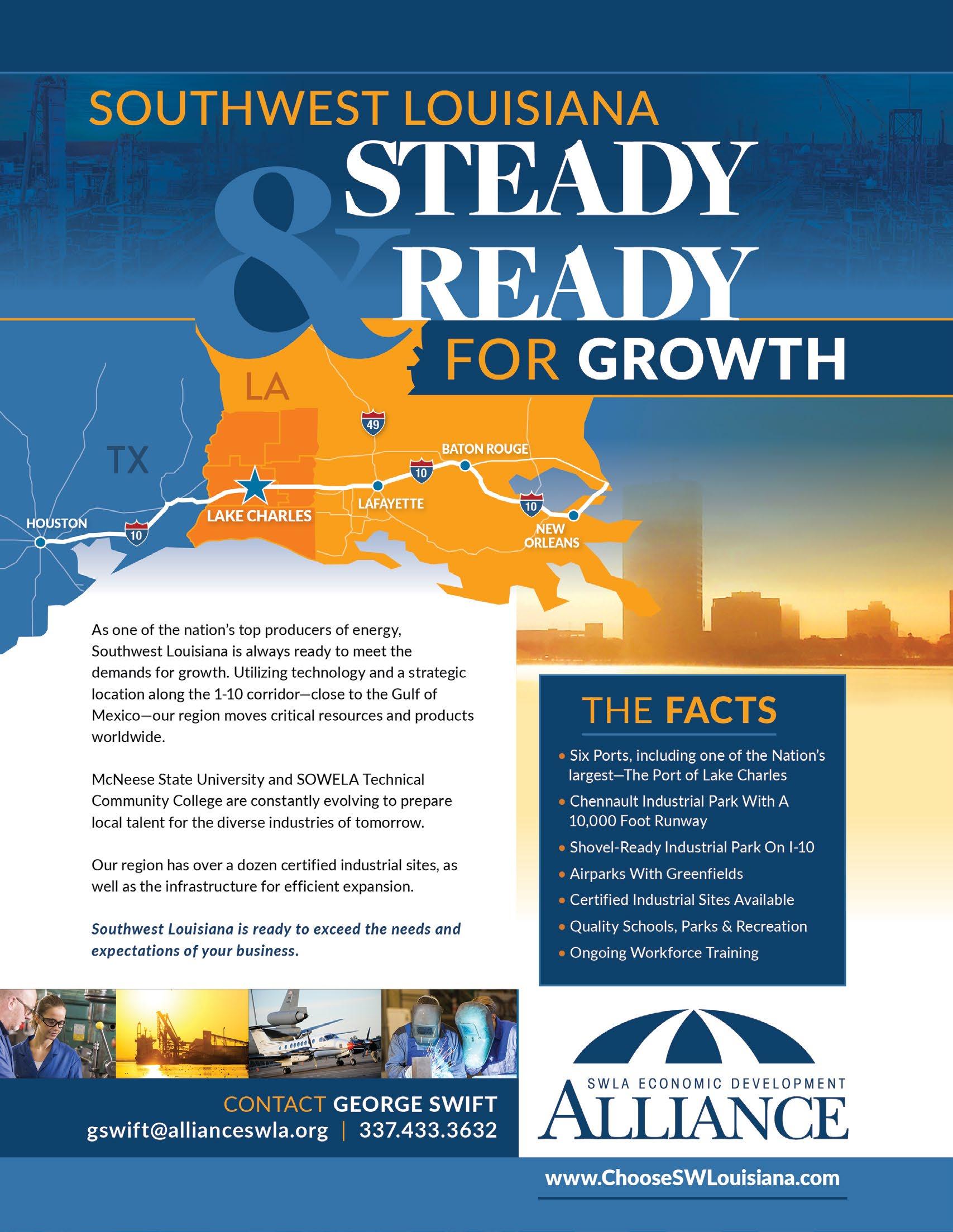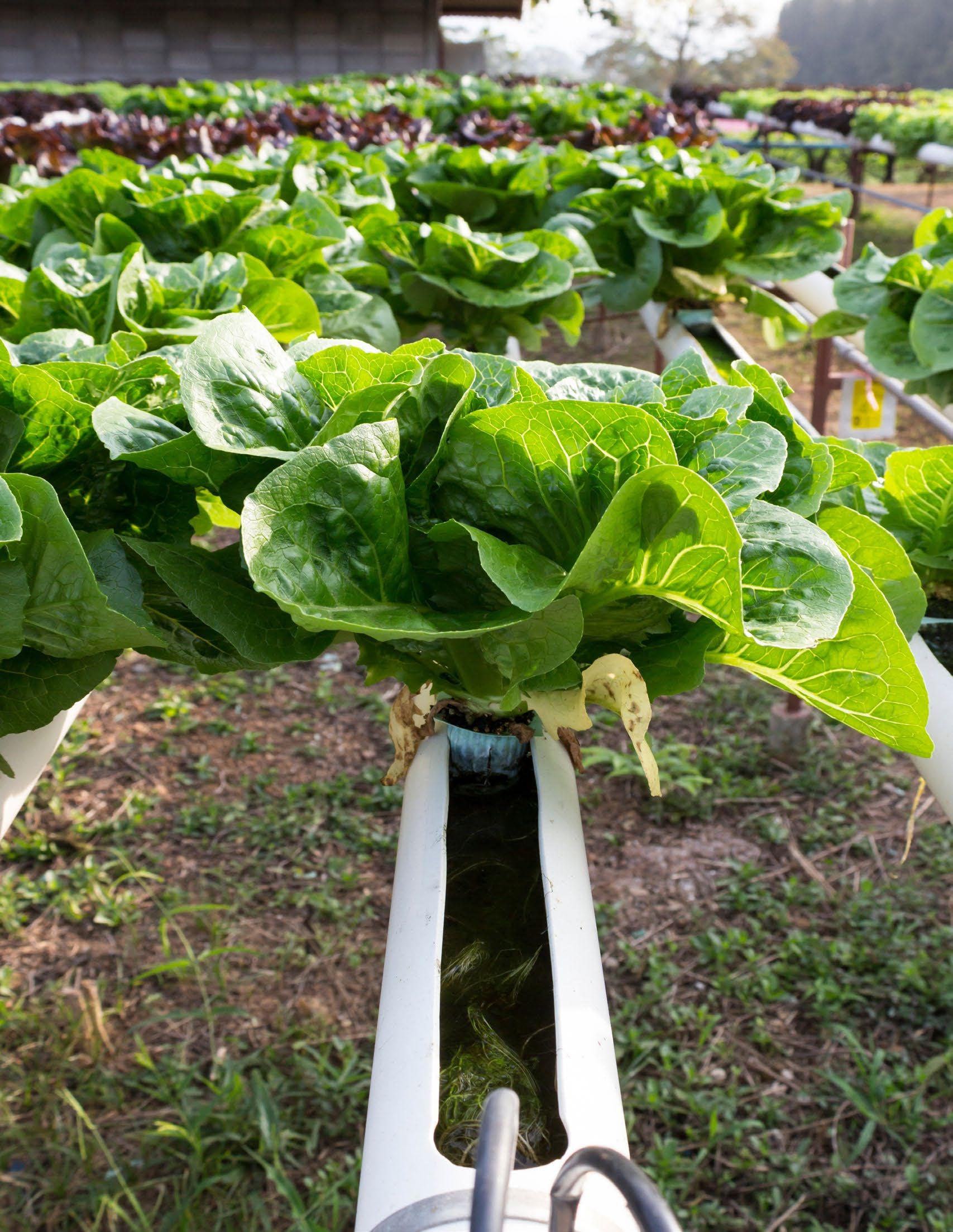

BUILD & ELEVATE THROUGH INNOVATION

BE NKY Growth Partnership, the economic development company for Northern Kentucky, provides companies with the expertise they need to bring or build opportunity in Boone, Kenton and Campbell counties. We attract new business and elevate what's already here to create innovative, forward-thinking and attractive environments for business and community success. We serve Northern Kentucky so that our community thrives through the creation of good jobs and a growing and diverse economy. We believe in Opportunity and Prosperity for All Northern Kentuckians.

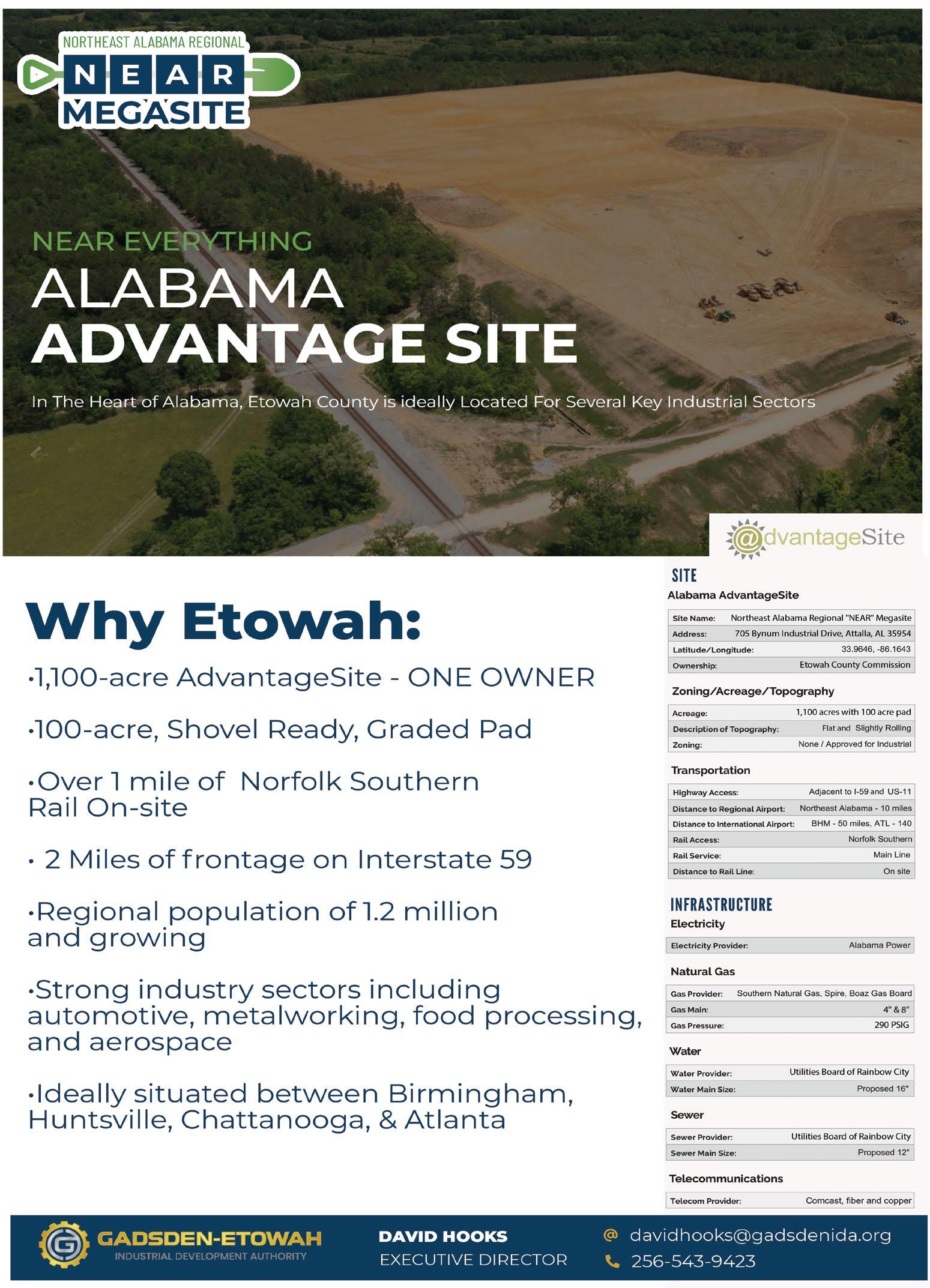
MARYLAND: OPEN FOR BUSINESS
KENTUCKY: WHY KENTUCKY?
INDUSTRY OUTLOOK: Precision Agribusiness Presenting Solutions to Farm Labor Problems
Farm operations are very labor-intensive. Now more farmers are finding better ways to precisely manage crop planting and harvesting using drones, robots and artificial intelligence
 By David Hodes
By David Hodes
INNOVATION AND STRATEGIES: Consumers Driving Food and Beverage Makers Into a Faster, More Efficient Mode
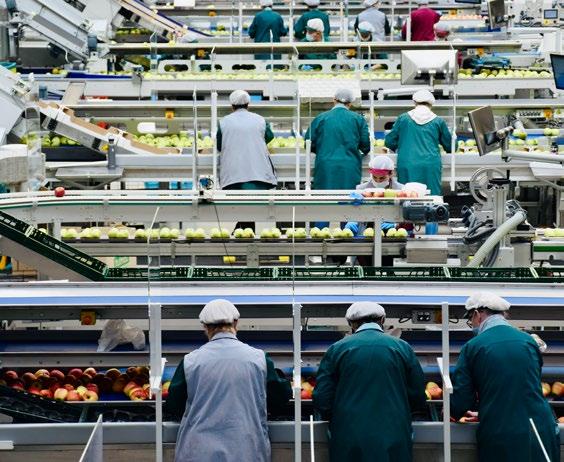
From processing to packaging, and the new demands of e-commerce, a flexible manufacturing process is key to survival in a fast-changing industry
 By David Hodes
By David Hodes
INDUSTRY INSIGHT: Travel and Tourism (Finally) Making Substantial Leaps


The world is breathing easier post-pandemic and celebrating their newly claimed freedom to go (almost) anywhere once again
By David HodesKANSAS: EMRACING ITS ROOTS TO ADVANCE THEIR FUTURE
ASSOCIATE PUBLISHER
Alan Reyes-Guerra
areyes@bxjmag.com
205-862-5175
EDITORIAL CONTRIBUTORS
David Hodes
CREATIVE DIRECTOR
Clint Cabiness
clint@dialedinmediagroup.com
205-613-5910
EDITORIAL OFFICE
King Publishing, Inc. 1000 Stafford Court Birmingham, Alabama 35242 Tel: 205-862-5175
ONLINE MEDIA ASSISTANT
Nick Boliek nick@dialedinmediagroup.com
SUBSCRIPTION CHANGES & REQUESTS
205-862-5175 or www.bxjmag.com
King Publishing, Inc., 1000 Stafford Court, Birmingham, AL 35242; www.bxjmag.com. Advertising rates are furnished upon request. Subscriptions are free to those who qualify. Non-qualified subscriptions are $69 in the U.S.; $89 in Canada and Mexico; elsewhere outside the U.S. is $99 for 10 issues. Back issue rate is $6 when available. Payment must accompany order. The views expressed in all articles and advertisements appearing in the Business Xpansion Journal magazine are solely those of the author and advertiser, respectively.
© Copyright 2023, King Publishing, Inc. All rights reserved. No partof this publication may be reproduced without written permission from the publisher.
POSTMASTER: Send change of address notification to Business Xpansion Journal, 1000 Stafford Court, Birmingham, AL 35242. Subscribers can make address changes by calling 205-862-5175 or by e-mail at www.bxjmag.com.
1000 Stafford Court, BIRMINGHAM, AL 35242


TEL: 205-862-5175
Printed in the U.S.A. 2001

Precision Agribusiness Presenting Solutions to Farm Labor Problems
BY: DAVID HODES
The technology behind planting and harvesting crops continues to evolve, especially over the last ten years, with the rise of precision farming designed to reduce labor costs and create more efficiencies for the farmer.
Sensors, GPS mapping, drones, robots and artificial intelligence are being combined now to get a better instant look at soil conditions and nutrients, irrigation adjustments needed, the growth progress of plants, and areas where there are breakouts of plant pathogens that could affect the whole crop.

Robots, for example, can be programmed to pull weeds and other routine work, including harvesting crops such as apples and other fruits using cameras and software with an algorithm that helps it identify ripe fruit. Robots can plant seeds, spray pesticides, water plants, and even thin forests. Robots used for crop harvesting can also collect information about the crop, which will help farmers measure their yields.

Farm operations are very labor-intensive. Now more farmers are finding better ways to precisely manage crop planting and harvesting using drones, robots and artificial intelligence
The big suppliers are stepping up to the challenge. John Deere bought their own robot company in 2021, Bear Flag Robotics, for $250 million. The Bear team of agriculture professionals, engineers and technologists are focused on autonomy, sensor fusion, vision, data, software and hardware.
Deere revealed their fully autonomous tractor in January, 2022, and just announced their newest robot, ExactShot, which enables farmers to reduce the amount of starter fertilizer needed during planting by more than 60 percent.
ExactShot uses sensors and robotics to place starter fertilizer precisely onto seeds as they are planted in the soil, rather than applying a continuous flow of fertilizer to the entire row of seeds
Across the U.S. corn crop, ExactShot could save over 93 million gallons of starter fertilizer annually.
The State of Ag Today
Farmers have had to adopt these efficiencies in the face of changes in global commodity prices. After peaking in the spring of 2011, global prices for most agricultural commodities began a decline that only began to slow down in the second half of 2016, according to Top Markets report from the International Trade Association.
As measured by the Food and Agriculture Organization’s (FAO) Food Price Index, aggregate prices fell more than 90 points—representing nearly 40 percent of their value—from January 2011 to January 2016.
Prices for cereals peaked in the second quarter of 2011 and have fallen steadily since, giving up 32 percent of their value through September 2016. Dairy and meat prices peaked later in 2013 and 2014.
The FAO and the Organization for Economic Cooperation and Development (OECD), in their joint OECD-FAO Agricultural Outlook 2016-2025, predict that global ag commodity prices will remain flat for the near to-medium future, at least, indicating that efficiency gains in production will enable production growth at lower real prices, and that productivity growth will be driven mainly by yield improvements.
According to analysis published by John Deere, with the global population expected to grow from 8 billion to nearly 10 billion by 2050, farmers need to increase production by 60 percent to 70 percent on today’s arable land.
Precision Agriculture Making Inroads
Agriculture’s planting and harvesting processes for better yields are being addressed by the movement to precision agriculture, also called digital agriculture.
The University of California-Davis College of Agricultural and Environmental Sciences, leading a wide-range of agriculture studies and applications, defines digital agriculture as an emerging field that applies digital technologies and data analytics to optimize and enhance various aspects of agricultural production.
It involves using sensors, drones, GPS, and other digital tools to collect, process, and analyze data related to crops, soil, weather, and other factors that impact agricultural productivity.
One of the primary goals of digital agriculture is to increase efficiency and reduce waste by making informed decisions based on real-time data.
Big Data Becomes a Big Force
All this precision agriculture change that’s underway is really about big data.
Big data is being used to analyze agricultural data, and provide insights into crop yields, soil health, and weather patterns.

One digital agriculture idea being explored now is the development and study of 3D orchards, a methodology using drones to map out an orchard that uses other sensors to understand the conditions, all managed by artificial intelligence.
As described by UC-Davis, the 3D virtual orchard (VO) is a technology to describe canopy geometry for individual trees in an orchard using 3D reconstruction of tree canopies. The 3D model in VO is created by photogrammetry using a series of aerial images of orchards acquired from different angles and heights.
Orchard topography, individual canopy cover, volume, height, size, spacing, etc., can be estimated by VO technology, which then goes to work:
• Simulating shadow on a tree crown.

• Forecasting yield.
• Mapping blossoms.
• Pruning/thinning with robotics.
“VO is a tool that we developed to make farmers, and also researchers, better understand how environmental factors affect crops,” Alireza Pourezza, assistant professor of Biological and Agricultural Engineering at the University of California-Davis, said. “We use 3D modeling to simulate an entire orchard, and

how it grows and how the trees develop, which can be modified to test different scenarios, and different management practices.”
This could help farmers predict the impact of climate change, he said. “We also work on other factors, such as crop yield and quality,” he said. “We do a lot of yield forecasting.”
The 3D system can be integrated into remote sensing technology to improve the accuracy of data, he said.
But there are issues to work out. “We know when we are working with remote sensing, we are dealing with a lot of different sources of errors that can manipulate the data,” he said. “Analyzing and making conclusions based on those data would be risky. So we use this 3D modeling to simulate the exact condition that the data was collected. And we combine that with some physical-based approach to get the most accurate and robust analytics.”
They can use VO to calibrate other spectral data collected from an orchard, such as measuring light interception for each tree. “Light is one limiting factor that can define how much carbohydrate can be produced with photosynthesis during the season,” Pourezza said. “So that can set the upper bound for yield, the maximum yield we can expect. And that’s a very important factor to manage other inputs, for example, nitrogen and water.”
The AI Factor
Researchers working with digital agriculture know that they have to be careful about using AI—the process of collecting some data in the field then trying to use AI to make a link between various data. “The problem with this methodology is that we are just collecting specific data—for example, nitrogen levels,” Pourezza said. “But there are a lot of specific conditions to each orchard that would contribute to the model that we calibrate,” he said. “That’s the reason why we don’t have a very robust remote sensing application, if we only rely on AI. So my approach is to combine mechanistic, modeling, physically-based approach with explainable AI. So we don’t let the artificial intelligence go and find any irrelevant pattern in the data. We kind of direct it to exactly look and see if there is a pattern in that specific area that we’re looking at, and then we try to expand that to other geographical locations.”
Precision agriculture has three sections, he said: data collection, data analytics, and then precise application. “So we have a lot of technologies available for monitoring. And we are
developing data analytics tool. But to efficiently use this data, we need valuable systems in the orchard that can apply exactly what is needed by the plant.
“So that’s like plant management, and it might be a little bit far from that. But in some cases, if you divide your orchard in half, and manage each half separately, you can make big progress.”
One thing they don’t know is field variability, he said, so they need to have this monitoring system and these reliable data analytics methods get some insight into the field variability. “That’s the time that we should start thinking what would be the best way to manage this field that precisely.”
Call for Application
Pourezza said that now it’s time to move this precision agriculture research into actual application. “There need to be startup companies who can provide these kinds of services and work with universities to make sure that their analytics are reliable. That’s not existing right now. We need policies from government to encourage the use of this technology. This technology can be used as a decision support system. So in many cases, growers make decisions without data or based on history or based on their gut feeling or any other way other than data. So this is a data driven decision support.”
Decision making should be improved in agricultural management, he said. “We know the impact of climate change. So based on that, we know what growers should do and what they shouldn’t do to protect the crop, and ideally improve yield and quality.”
End Result of Industry 4.0
One study by researchers in Greece published in Agronomy, an international scientific peer-reviewed journal, determined that agricultural intensification and industrialization are prerequisites for “harnessing agro-ecological and socio-technological processes’ complexity in order to increase agri-food production, while contemporarily reducing the associated ecological footprint.
“In this regard, technology-enabled agricultural solutions could support farmers in improving productivity levels while at the same time ensuring safety and sustainability in agricultural operations.”
Industry 4.0 in agriculture is considered a financially, environmentally and technically viable option to tackle agrifood value chain-related challenges by introducing connected equipment and farmers’ interaction with legacy technology; automation in agricultural operations; and scientific assessment methods for real-time monitoring of input requirements and farming outputs, according to the study. X

Consumers Driving Food and Beverage Makers Into a Faster, More Efficient Mode
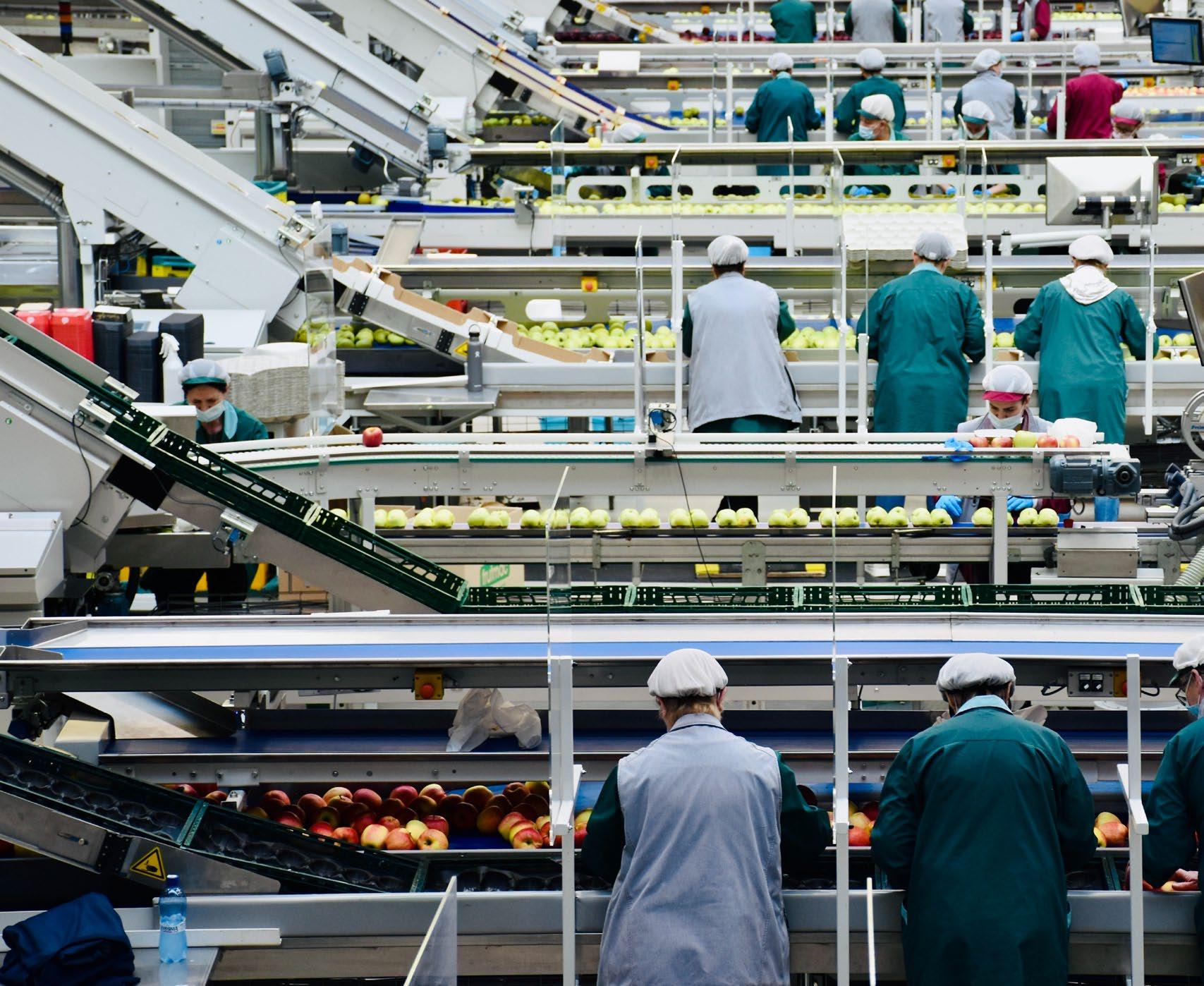 BY:
BY:
The food and beverage industry is moving faster than ever before trying to keep up with both consumer demands, packaging sustainability, and packaging construction for more efficient sales, shipping and distribution. ...........................................................................................................
Automation continues to dominate the news here, with robotics becoming increasingly prevalent, from packaging machines to automated palletizing to full autonomous production lines.


Packaging has to be sustainable now, with some packaging even being edible, in an effort to reduce the plastics and paper waste.
Major food and beverage manufacturers are taking initiatives to shift towards
DAVID HODES
From processing to packaging, and the new demands of e-commerce, a flexible manufacturing process is key to survival in a fast-changing industry
sustainable packaging. For instance, Kellogg’s in 2021 stated that nearly 76 percent of its total packaging is recyclable, compostable, or reusable, including 14 percent of their plastic packaging. And consumers are demanding more customized products, meaning that manufacturers have to adjust their production to smaller, more flexible lines.
Food Safety as New Focus

All of this comes under the increasingly troublesome specter of food and beverage safety, which has led to increased

investment in equipment and facilities designed to prevent contamination and ensure proper sanitation. This includes everything from UV-C light technology to advanced air filtration systems and more.
The Centers for Disease Control and Prevention (CDC) reported that new challenges to food safety will continue to emerge, largely because of:
• Changes in our food production and supply, including more imported foods.
• Changes in the environment, leading to food contamination.
• New and emerging bacteria, toxins, and antimicrobial resistance.
• Changes in consumer preferences and habits.
• Changes in the tests that diagnose foodborne illness.
One example of food safety trouble comes from Global Market Insights, a global market research and management consulting company. In December, 2022, after the U.S. Department of Agriculture’s Food Safety and Inspection Service (FSIS) suspected the possibility of cross-contamination in under-processed products, Kraft Heinz Foods Company had to recall about 2,400 pounds of ready-to-eat ham and cheese loaf products.
That case represents how the meat processing industry has come under particular tougher scrutiny, and not just for the meat product itself. The North American Meat Institute’s (NAMI) 13-member Protein People, Animals and Climate of Tomorrow (PACT)— a collective vision and set of goals for the future of the
meat industry — also includes a worker safety goal by which members will reduce workplace injuries by 50 percent (from the 2019 baseline), building off reductions the industry made the prior 20 years.
“The Protein PACT unites, amplifies and strengthens commitments from farmers, packers, and processors to conserve energy and water, maintain healthy soil and reduce emissions as we progress toward carbon neutrality. Producing the meat, poultry, eggs and dairy we need using less land, water and energy has never been more important,” according to the organization’s website.
Industry Snapshot
In 2017, there were 36,555 food and beverage processing plants located throughout the United States, employing more than 1.7 million people, according to research from the Economic Research Service of the USDA.
Some of the largest states had the highest number of food and beverage processing plants: California had the most plants (5,731), followed by New York (2,573) and Texas (2,273).
California and Texas ranked among the top four sates in general agricultural production in 2017, followed by Washington, Oregon, Wisconsin, Illinois, Michigan, Ohio, Pennsylvania, New Jersey, New York and Florida, each with between 1,000 and 4,000 manufacturing plants.
California holds an important national position in several food and beverage processing industries— including wineries (1,499 plants), fruit and vegetable processing (333 plants), and coffee and tea manufacturing (100 plants)—because of its favorable climate for growing a variety of crops and other factors, such as its large ports and other infrastructure.
In addition, California ranks second only to Wisconsin in the number of dairy processing plants (140).
In New York, bakery manufacturing plants were the most numerous of the state’s food and beverage processing plants (1,197) in 2017, followed by wineries (207 plants) and breweries (171 plants).
The top four food and beverage processing industries in Texas in 2017 were bakery manufacturing (669 plants), animal slaughter and processing (270 plants), and wineries and breweries (152 and 135 plants, respectively).
According to data from the market research firm Mintel, there were 21,435 new food and beverage products launched in the United States in 2020. This includes products in categories such as snacks, dairy, bakery, confectionery, and beverages (it does not include products that were introduced on a small scale or only in local markets).
The Role of Packaging


Packaging has a number of different consumer roles. “If I think about the role that our packaging plays, it’s a number of different things, from extending shelf life to facilitating distribution to making it easy for the consumer to use,” Amcor CEO and managing director Ron Delia told a McKinsey and Company researcher. Amcor is a global packaging company with more than 45,000 employees and an annual revenue of more than $12 billion.
E-commerce packaging has different issues to consider, he said. “It creates more demands on the package,” Delia said. “Take any grocery item. It could be pasta sauce in a rigid container or
rice in a flexible package. Everything that the item’s package does in a traditional brick-and-mortar retail channel, it has to do in the e-commerce channel—and then some.”
Overall, e-commerce packaging is designed to protect the product during shipping and provide a positive unboxing experience for the consumer.
On-the-shelf product packaging is designed to catch the consumer’s eye in a physical store, with attention-grabbing graphics, colors, and fonts. E-commerce packaging may focus more on practicality and functionality, such as protecting the product during shipping and being easy to open.
Where It’s Really All About
The automation of food and beverage processing is all about labor. “Back in the day, people were trying to save labor to cut costs,” Jeff Jendryk, senior director of business development at Kiewit Industrial Group, told BXJ. Kiewit is a food and beverage processing construction that had 2020 revenues of $12.5 billion and employs more than 27,000. “So they used robotics on the back end. Basically, once the product was already packaged, put in cartons, and got to the stretch wrapper, instead of having three or four people at the end of the line hand stacking boxes, they went to robotics,” he said. “Then they said, ‘Okay, that works really well.’ But the food industry is labor intensive, so they are
going to use robotics to try to reduce the labor and to keep the efficiency up at a current level.”
To put robots into a food processing, there is a concern about the sanitary design. “And robots are expensive,” Jendryk said. “What the robotics people had been saying yes they are, but the robots will run 24/7.”
Jendryk says that the big box stores are driving the market in terms of packaging. “One thing that I could say about the food industry is that change is constant. And the packaging people are the ones that are constantly changing. They have to because of market demands.”
In terms of the processing plant, food and beverage manufacturers have to react to the trends, which is speed to market faster, quicker, and less expensive. “Plants are being more flexible, and are being able to have more SKUs produced.

“On the alternative meat project side, there are things going on where they’re looking at, I’ll call it cellular manufacturing, or smaller manufacturing spaces, that can be more flexible versus big mega projects, and big mega plants to produce just one product,” Jendryk said. “So plants have to be flexible.”
Plants have to run around the clock today, he said. “But the problem is logistics. It’s about where you put that facility. Where is the labor? So there’s a lot more being looked at when you’re building a new plant, because most of the food plants have been around since the 60s and the 70s. They’re old. I’ve seen many times where clients want to retrofit a facility because it might be in the right location. But they’d be better off walking away from that and just building from scratch.”
Right now, the search firms such as Deloitte and Ernst and Young are spending a lot of time working with food clients and manufacturing facilities, because there are so many things that go into a decision, Jendryk said. “It’s not just tax rates. It’s not water. It’s labor. It’s all utilities. I think we’re starting to see a heck of a lot more work being done on site selection, and where they put these plants.”
At a Tipping Point
Ernst and Young report that food and agriculture face systemic change driven by consumer-centricity, planet-friendly initiatives and increasingly connected ecosystems.
The food system is at a tipping point. “Changing consumer food preferences and eating behaviors are fueling the shift from a commodity-driven supply chain focused on scale to a personalized and value-added food and ag ecosystem. Adapting to this dynamic environment requires us to reimagine a food system where technology enables new collaboration, consumer demand drives production, and sustainability shapes investment decisions. It requires smart strategic planning grounded in an objective view of the current state, data-driven analysis of market opportunities and expert insight into future scenarios.” X
Travel and Tourism (Finally) Making Substantial Leaps

 BY DAVID HODES
BY DAVID HODES
Tourism is back with a vengeance. Just looking at the crowds at various airports across the country—such as Washington D.C.’s Reagan National Airport, Houston’s George Bush Intercontinental Airport, and the brand new $1.5 billion Kansas City’s International Airport that just opened in February, all as witnessed by this writer this year—people are on the move again.
They are heading back to their favorite cities to do their favorite things, such as the cherry blossoms festival in D.C. in March and April each year. The city expects 1.5

The world is breathing easier post-pandemic and celebrating their newly claimed freedom to go (almost) anywhere once again
million national and international visitors this year just to see the blossoms, according to a local news station.
But there are still nagging carry-overs from the pandemic that may stay in place long after the pandemic officially ends.
The Bad..and the Good
The influence of the pandemic can still be felt.
Airports, trains, buses and their terminals have developed new cleaning protocols. Because of still-enforced restrictions in international destinations, domestic tourism has become more popular.
And with some companies adhering to the remote work alternative offered during the pandemic, some workers are finding that they can travel and live in other areas of the country—or the world—and still be the devoted employee that their company wants them to be.
So Where are We Now?
According to the U.S. Travel Association, domestic leisure travel in the U.S. was down about 30 percent in 2020 compared to 2019 due to the pandemic. Business travel was down even more sharply, with an estimated 70 percent decline in 2020 compared to 2019.

But travel spending totaled $93 billion in
February—5 percent above 2019 levels and 9 percent above 2022 levels.
As vaccinations became more widespread and restrictions eased in 2021, travel began to pick up again. In fact, the Transportation Security Administration (TSA) reported that on some days in March, 2021, it screened more than 1.5 million travelers, the highest numbers since the pandemic began. The TSA reported 2 million for travelers screened in one day on Friday, June 11.
A survey by TripAdvisor in 2021 found that over two-thirds of Americans (67 percent) planned to travel in the summer of 2021, which was a 17 percent increase from those who traveled in the spring of 2021 (March 1- May 31).
Millennials are the most excited to get back out there, with the vast majority (72 percent) of that generation planning trips. Although many still plan to drive to their destination (43 percent), 19 percent plan to fly, up 4 percent from this spring.
Insights from an April 2022 Expedia Group survey conducted by Wakefield Research show that 76 percent of consumers planned to take a leisure trip in the next 12 months, or as many as 84 percent of Gen Z consumers and 81 percent of Millennials.
On average, consumers were expected to take three trips during 2022.

“I think this is the expected result, given the fact that society postponed their travel desire for about three years,” Cevat Tosun, the Eisenhower Chair and professor of Tourism Studies and Management at George Washington, told BXJ. “Now it is time to travel and to commit to what they planned three years ago. The trend for travel will increase rapidly. And this trend will continue for a while.”
The problem is with supporting infrastructure. “The question is how airports are managing this overcrowded (situation). I think the airports and the airlines, according to research results, are not ready to manage this demand,” Tosun said. “Airports and airlines set themselves within a conservative business model to manage this high demand. They would like to manage this high demand with fewer resources, and less money, and with less capacity.”
Although they invest in the talent management, he said, many companies, particularly the service industry, the hospitality industry, airline industry, and the airports, failed to manage the human resources the day they lost their human capital (because of the pandemic). “They would like to now regain that,” he said. “But it’s not easy. Some human talent was lost permanently. They will never come back to hospitality industry, or the airport industry, or the airline industry. Some of them established their own businesses, and became entrepreneurs. Some of them found a better job.”
A New Strategy Kicks In
One aspect of the pandemic is that this country, like many others, experienced the real economic importance of travel and tourism. The U.S. government has done something about that.

The National Travel and Tourism Office, part of the U.S. Department of Commerce, released a new strategy for tourism
on June 6, 2022.
In 2019, nearly 80 million international travelers visited the United States and contributed nearly $240 billion to the U.S. economy, making the United States the global leader in revenue from international travel and tourism.
Travel and tourism was the top services export for the United States in 2019, generating a $53.4 billion trade surplus.
The travel and tourism industry was one of the U.S. business sectors hardest hit by the pandemic and subsequent health and travel restrictions, with travel exports decreasing nearly 65 percent from 2019 to 2020.
The decline in travel and tourism contributed heavily to unemployment; leisure and hospitality lost 8.2 million jobs between February and April 2020 alone, accounting for 37 percent of the decline in overall nonfarm employment during that time.
By 2021, the rollout of vaccines and lifting of international and domestic restrictions allowed travel and tourism to begin its recovery. International arrivals to the United States grew to 22.1 million in 2021, up from 19.2 million in 2020. Spending by international visitors also grew, reaching $81 billion, or 34 percent of 2019’s total.
The new strategy from the U.S. government focuses the full efforts of the federal government to promote the United States as a premier destination. It aims to support broad-based economic growth in travel and tourism across the United States, its territories, and the District of Columbia.

The strategy has a five-year goal of increasing American jobs by attracting and welcoming 90 million international visitors, who, it is estimated, will spend $279 billion annually by 2027.
The strategy supports growth and competitiveness for an industry
that, before the pandemic, generated $1.9 trillion in economic output and supported 9.5 million American jobs.
Outlook for the Future of Tourism

According to the United Nation’s World Tourism Organization (UNWTO) and their forward-looking scenarios, international tourist arrivals could reach 80 percent to 95 percent of pre-pandemic levels in 2023, depending on the extent of the economic slowdown, the ongoing recovery of travel in Asia and the Pacific and the evolution of the Russian offensive in Ukraine, among other factors.
“All regions are bouncing back,” the UNWTO reported.
According to new data from the UNWTO, more than 900 million tourists travelled internationally in 2022, or double the number recorded in 2021, though still 63 percent of pre-pandemic levels.
Every global region recorded notable increases in international tourist numbers. The Middle East enjoyed the strongest relative increase as arrivals climbed to 83 percent of pre-pandemic numbers. Europe reached nearly 80 percent of pre-pandemic levels as it welcomed 585 million arrivals in 2022.
Africa and the Americas both recovered about 65 percent of their pre-pandemic visitors, while Asia and the Pacific reached only 23 percent, due to stronger pandemic-related restrictions which have started to be removed only in recent months.
The first UNWTO World Tourism Barometer of 2023 also analyses performance by region and looks at top performers in 2022, including several destinations which have already recovered 2019 levels.
The latest UNWTO Confidence Index shows cautious optimism for January-April, higher than the same period in 2022. This optimism is backed by the opening up in Asia and strong spending numbers in
2022 from both traditional and emerging tourism source markets, with France, Germany and Italy as well as Qatar, India and Saudi Arabia all posting strong results.
Lessons Learned
“What we learned as a tourism industry or service industry from the pandemic is that resilience should be one of the elements of a strategy,” Tosun said. “And we should have machine intelligence, more machines and less humans, less employees, more technology, flexibility from many perspectives, and market diversity.”
For example, many destinations learned that they cannot rely on only international tourists. So they needed to take care of their domestic tourists as well, he said. “That domestic market is very accessible, and it is valuable. And now I think the tourism destination is giving more priority to the domestic tourists as well.”
The Expedia survey found that domestic travel continues to drive the vacation rental category, with Australia, France, Brazil, and the U.S. maintaining their positions as the top booked countries.
Where to Now?
“The travel industry is still one of the most resilient industries, and one of the most promising industries,” Tosun said. “Because without travel, we can’t do anything. At any cost, we must travel. It is not our choice. It is a basic need. Virtualization, yes, is helping, but it’s not sufficient to do our business.
“In the coming years, if things go like this, we will have more travel demand, and the travel and tourism industry contribution to the global economic picture will dramatically and rapidly increase.” X
Maryland is Open for Business MARYLAND:
With a strong focus on education, Maryland has created one of the most innovative and entrepreneurial economies in the world. High-tech, high-growth sectors, like cybersecurity, life sciences, aerospace and defense, and advanced manufacturing, are thriving in Maryland, thanks to a talented workforce, a critical mass of companies, and a number of top universities, including the University of Maryland and Johns Hopkins University. In addition, more than 50 top federal agencies and research labs are located in Maryland, including the National Institutes of Health, the National Cancer Institute, and the U.S. Food and Drug Administration.
Maryland has a highly-educated workforce, with more doctoral scientists and engineers in the workforce than anywhere else in the country and one of the highest concentrations of professional and technical workers.

Often called the Home of the Human Genome, Maryland boasts more than 500 life sciences companies that are working on everything from cuttingedge medical devices to treatments for cancer, malaria, and, most recently, coronavirus. The state is also known as the Cyber Capital of the World, with a confluence of more than 116,000 IT professionals and many of the world’s top security agencies, like the U.S. Cyber Command, the National Security Agency, and the National Institute of Standards and Technology.
Its strategic location along the Mid-Atlantic corridor makes Maryland an excellent location to reach one-third of the U.S. population within an overnight drive, and the state has close proximity to key U.S. cities like New York and Boston. In addition, Maryland has an excellent transportation infrastructure, with its Port of Baltimore handling a record-breaking 43 million tons of cargo in 2019, and the Baltimore-Washington International Thurgood Marshall Airport welcoming more than 27 million passengers each year. And the new Tradepoint Atlantic development has helped draw a number of top retail companies to locate distribution facilities in the Baltimore area, including Amazon, Home Depot and Floor and Décor.
The state continues to retain its AAA bond rating, one of only thirteen states to achieve this highest award.
Maryland is also a center of culture and tourism, with more than 42 million visitors each year enjoying the state’s mountains, beaches and small towns and big cities in between, as well as the famous seafood and Chesapeake Bay.
For more information on the opportunities in Maryland, please contact the Maryland Department of commerce at 410-767-6300 or visit their website at www.commerce.maryland.gov or www.open.maryland.gov
MARYLAND: Port of Baltimore Economic Impact
Approximately 37,300 jobs in Maryland are generated by port activity. 15,330 are direct jobs generated by cargo and vessel activities at the Port. 16,780 are induced jobs, i.e. jobs supported by the local purchases of goods and services by direct employees. 5,190 are indirect jobs, i.e. jobs supported by the business purchases of the employers who create the direct jobs.
The Port of Baltimore is a major source of personal and business revenues in the State of Maryland. The Port was responsible for $3.3 billion in personal income. The Port’s average annual salary for the direct job holder is 9.5% higher than the average annual wage for the State of Maryland (U.S. Bureau of Labor Statistics). The Port generated $2.6 billion in business revenues. Activities of the Port generated $395 million in state, county, and municipal tax revenues.
Approximately 101,880 other jobs in Maryland are directly related to activities at the Port. Related jobs are those with Maryland companies that choose to import and export their cargo through the Port of Baltimore, but they have the option of shipping their products or supplies through other ports.
Combining direct, induced and indirect jobs with related jobs, there are over 139,180 jobs linked to the Port.
For more information on the Port of Baltimore, please visit www.mpa. maryland.gov
 MPA Interim Acting Executive Director Brian Miller
MPA Interim Acting Executive Director Brian Miller
MARYLAND: Calvert County
Established as one of the oldest counties in the United States, Calvert County, Maryland has a total of 345 square miles, of which 213 square miles is land and 132 square miles is water. Located 30 miles southeast of Washington, D.C., the county is known for its attractive location bounded by the Chesapeake Bay on the east and the Patuxent River on the west. The area offers strategic proximity to Baltimore, Annapolis, the Naval Air Station Patuxent River, Naval Support Facility Indian Head and Joint Base Andrews; access to major transportation networks; and proximity to the resort destination of Solomons Island, the Chesapeake Hills Golf Course, and Rod ‘N’ Reel Resort and Spa.
The county’s strategic positioning creates opportunities for businesses to engage in government contracting and benefit from the economic activities associated with the federal government.
The county features three opportunity zones, namely the Patuxent Business Park (PBP), the Calvert County Industrial Park in Prince Frederick and the Chesapeake Industrial Park in Owings. Each location offers an array of attractive incentives and loan programs, ombudsman programs, fast-track permitting, workforce development coordination and convenient access to airports and seaports. These initiatives cater to a diverse range of businesses, including manufacturing, distribution, technology and professional services.
Patuxent Business Park is Southern Maryland’s first comprehensively planned business campus designed to match Calvert County’s much sought-after quality of life. It is a Federal Opportunity Zone and a Calvert County Commerce Zone, designations that extend tax credits to qualifying new and expanding businesses. The 92-acre corporate business campus possesses ample green space that can accommodate various types of businesses including Class A office and flex space. Public water and sewer and a variety of fiber and telecom providers serve the property. Located close to both Dominion Energy’s Cove Point Liquefied Natural Gas Plant and Exelon’s Calvert Cliffs Nuclear Power Plant, any business operating in Calvert County would enjoy a strategic advantage. Furthermore, the Naval Air Systems Command, situated just south of the county across the Patuxent River, adds to the region’s appeal.
Calvert County presents businesses with the advantage of being close to the Washington, D.C. metropolitan area while still providing a charming small-town atmosphere. Residents receive unlimited access to a variety of cultural and recreational activities including museums, theater, professional sports, symphony orchestras and natural attractions such as Calvert Cliffs State Park.

The county benefits from a skilled and educated labor force, with access to nearby educational institutions such as the College of Southern Maryland allowing for a range of training programs and degrees to support workforce development. Its outstanding publicschool system and top-notch healthcare services ensure access to quality education and excellent medical care for its residents. These exceptional qualities make Calvert County an ideal place for employers and families, as it provides an environment where they can thrive both personally and professionally.
For more information, please contact the Calvert County Department of Economic Development at 410-535-4583 or visit www.choosecalvert. com , www.calvertcountymd.gov , or www.visitcalvert.com.
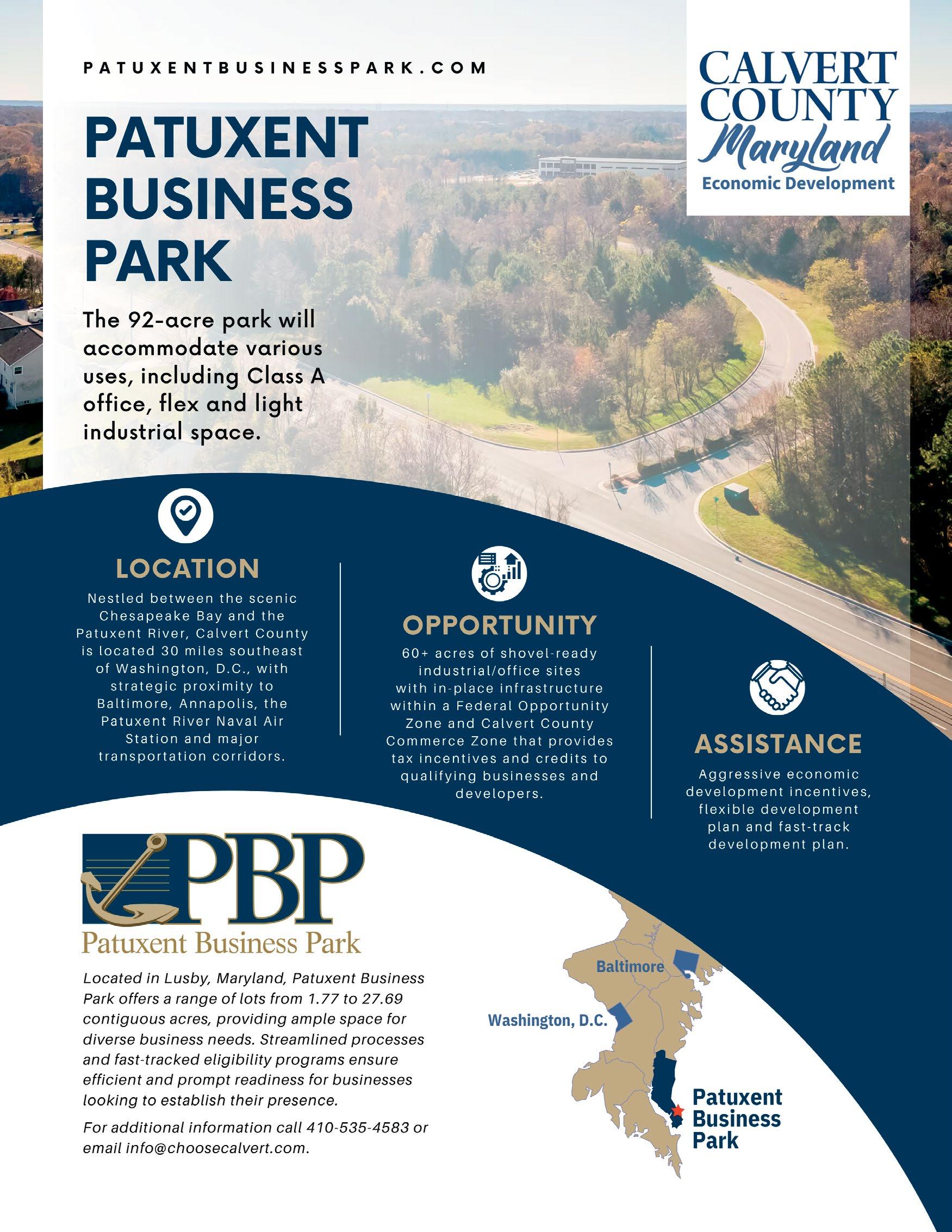
MARYLAND: Kent County
Kent County is a scenic peninsula on Maryland’s Upper Eastern Shore of the Chesapeake Bay, ideally situated less than a two-hour drive from Philadelphia, Washington D.C., Annapolis, Dover, and Northern Virginia. It is home to two Main Street communities, an Arts & Entertainment District, historic Washington College, and one of the largest marina communities in Maryland.
Kent County is only one of five counties in Maryland with NO business personal property tax. Kent County Economic Development led the efforts to pass a state-wide Sales and Use and Personal Property Tax Exemption for Data Center to locate in Maryland. The County seat of Chestertown is a designated State Enterprise Zone, a federal Opportunity Zone, and HUBZone. In December 2021 a second Enterprise Zone was designated by the State. In 2017 the Kent County Commissioners enacted local legislation to provide a property tax credit, Commerce Zone Tax Credit, for business entities that obtain new, improved, or expanded premises in all State designated priority funding areas. This demonstrates the commitment of the County Commissioners to advocate for thoughtful growth and development.
The Chestertown Business Campus is one of the largest economic development projects in many years. The 80-acre site is home to Dixon Valve & Coupling’s new distribution
facility, new corporate headquarters, a new manufacturing facility, and a new facility for the growing YMCA.
Kent County has completed the backbone implementation of a 110-mile fiber optic backbone throughout the county. The county entered a public-private partnership with Kent Fiber Optic Systems to provide public institutions with high-speed reliable internet access. KentFOS’ open access network allows Internet Services Providers the ability to offer 1G service to businesses and residences. The primary goal was to enhance the infrastructure needed to support new and existing businesses and organizations in Kent County, particularly with affordable, robust, and high-capacity internet access. By taking this action, the county is expanding the competitive capability of local businesses and organizations and providing more opportunities.
The rural setting provides an excellent quality of life, a supportive eco-system, and access to 19 million people within 100 miles, Kent County is an ideal place for businesses providing large talent pools, customers, and suppliers.
For more information, please contact Kent County Economic and Tourism Development at 410-778-0416, email: econdev@ kentgov or visit www.kentcounty.com/business . X
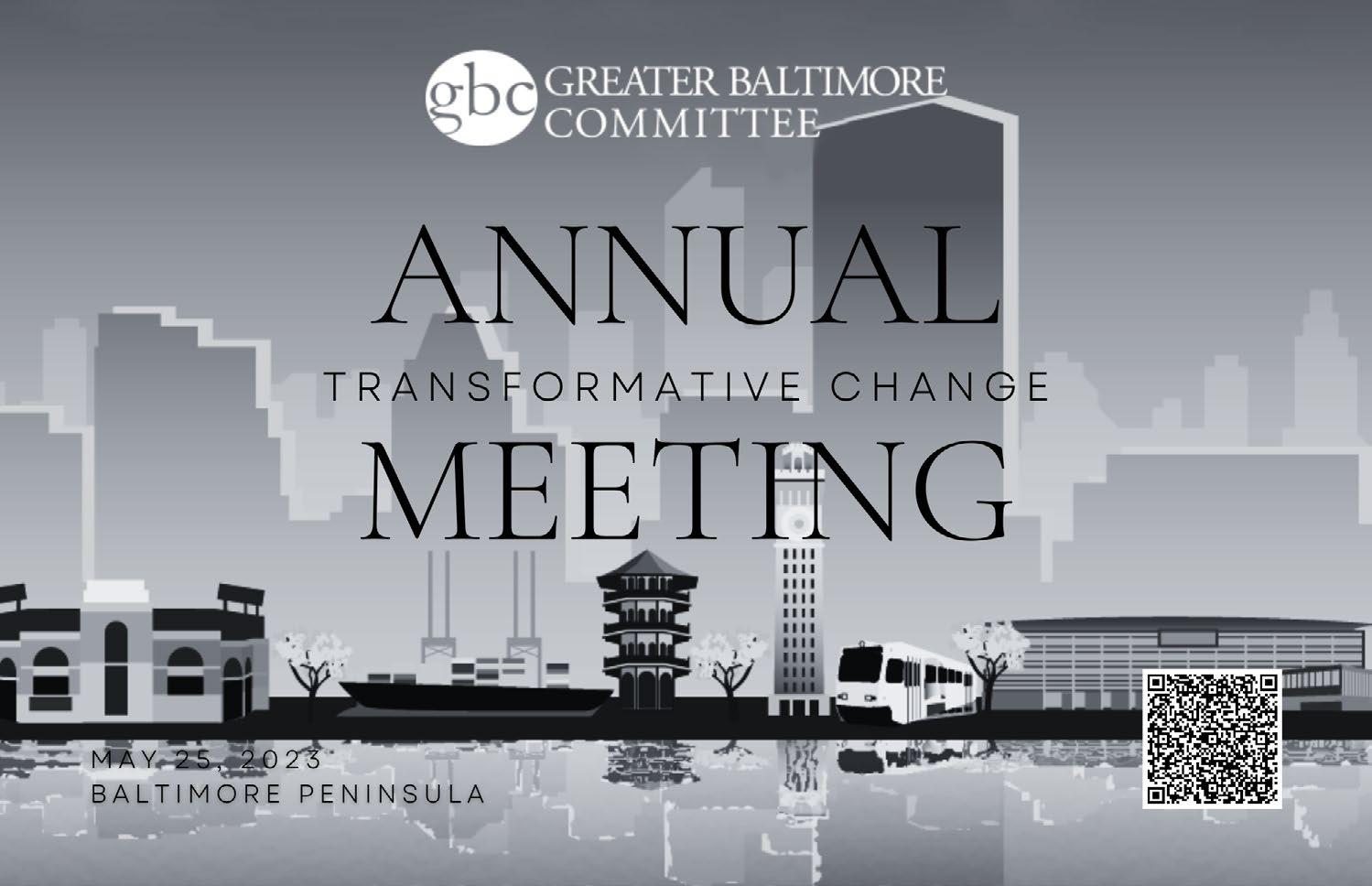
T a x I n c e n t i v e s
B u s i n e s s R e s o u r c e s
F i b e r C o n n e c t i v i t y
I n t e r s t a t e A c c e s s

D e s i g n a t e d G r o w t h A r e a s
1 9 M i l l i o n P e o p l e W i t h i n 1 0 0 M i l e s
B u s i n e s s A s s o c i a t i o n s
A c c e s s t o H i g h e r E d u c a t i o n
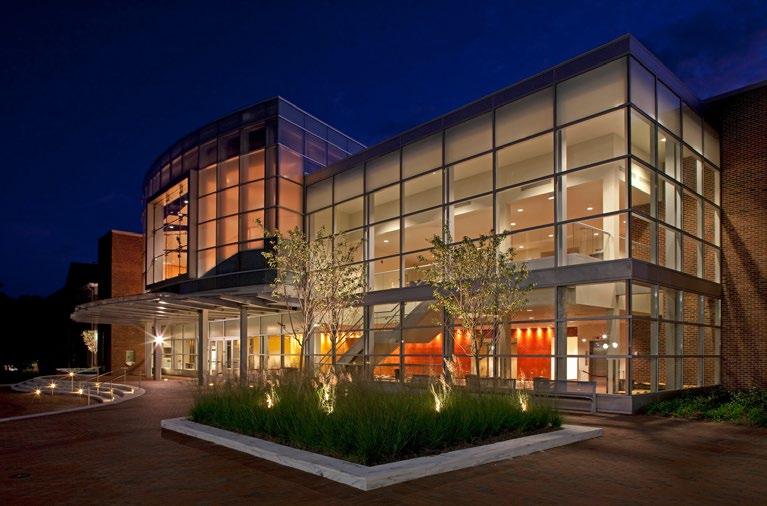
5 S u s t a i n a b l e C o m m u n i t i e s
E d u c a t e d & T r a i n e d W o r k f o r c e

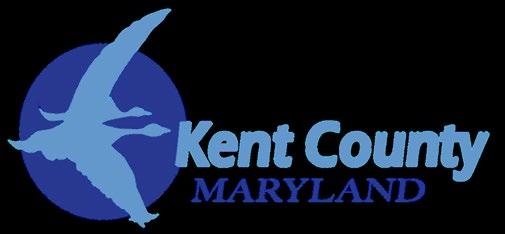
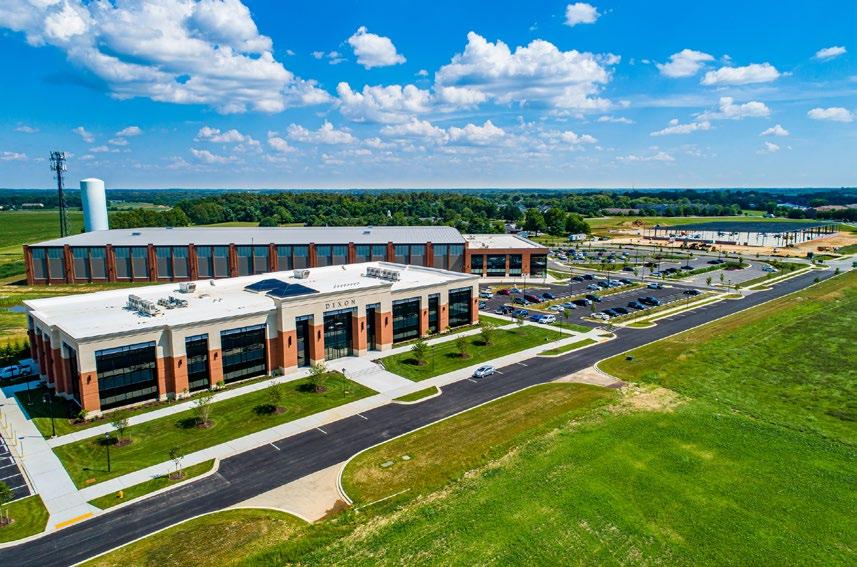

A c c e s s t o p o r t s & 3

Why Kentucky? KENTUCKY:
Kentucky has a variety of strengths that make it the best place to do business in the U.S., from low utility costs to unmatched logistical advantages. Check out just a few of the reasons the Bluegrass State is the right place to grow your business.

Top 10 Reasons for Locating or Expanding Your Business in Kentucky
1. We’re in the middle of everything. Within a day’s drive of two-thirds of the U.S. population, Kentucky is located at the center of a 34-state distribution area in the eastern United States, Kentucky’s location advantage facilitates the distribution of goods and materials to a massive industrial and consumer market. Kentucky’s borders are within 600 miles of over 65 percent of the nation’s population, personal income and manufacturing business establishments. That helps when you have to move product, meet with a customer or close a sale.
2.
That is because Kentucky business is served by not one but two international airports plus three global shipping hubs, giving companies a leg up on getting products, papers and packages into the global stream of commerce. Kentucky is home to the UPS World Port, DHL Americas hub in Northern Kentucky, the Amazon Air global port in Northern Kentucky and several large FedEx ground hubs throughout the state. Due to this strong presence by the world’s most prestigious logistics companies, products manufactured in Kentucky can get anywhere in the world virtually overnight.
3. Effective networking.
Kentucky is well served by 20 interstates and major highways, major rail networks, barge traffic on the Ohio and Mississippi rivers, five commercial airports and dozens of regional airports. Our ideal transportation network can move products easily and efficiently by air, rail, road and water to all points of the globe.
4.
Kentucky ranks 1st in the nation for cost of doing business according to CNBC. Kentucky’s innovative and progressive tax incentive programs also provide the flexible financial assistance businesses need when locating, expanding or reinvesting in the state.



5. Electrifying power rates.
Among the more significant location factors having a direct influence on bottom line costs is the annual capital that must be committed to utility consumption. Kentucky has among the lowest cost of electricity in the industrial sector in the U.S., coming in 17 percent lower than the national average.
6. We’re training the workforce of the future. Kentucky offers workforce recruiting and training assistance for new and existing employees at no charge. We also offer a personalized approach to your workforce needs – you tell us what you need, and we custom-design a solution, saving you time and money. Last year alone, we trained more than 95,000 people and supported more than 5,000 companies.
7. Business-minded educational approach.
Kentucky colleges and universities are true partners in the development of the workforce of the future. They understand the needs of business. In fact, from innovative K-12 schools and apprentice-style training to cutting edge research universities and continuing education programs, education is a way of life in Kentucky.
8. Strong support for innovation and entrepreneurship. Kentucky’s drive to encourage business innovation and small business startups is evident by the array of unique and effective programs offered for both entrepreneurs and investors. Our KY Innovation office offers startup and capitalization assistance as well as mentoring to help small businesses turn big ideas into reality.
9. Unsurpassed quality of life.
With one of the lowest cost of living rates in the U.S., your dollars go further in Kentucky! The cost of living is more than 10 percent lower in Kentucky than the U.S. average, and housing costs alone are up to 30 percent lower. Plus, life outside the office just couldn’t be better than it is in Kentucky. Our breathtaking countryside is home to the heart and soul of America’s thoroughbred industry. Our bluegrass music, crafts and fine arts are known around the world, and our state parks are among the finest in the nation.
10. Business-friendly attitude.
Businesses want fast, efficient and personalized service, and Kentucky provides it. We listen to you, help identify your needs and then we work with you one-on-one to devise solutions that will maximize your success while lowering your cost of doing business in Kentucky. Whether you are across the street or across the globe our team is eager to assist your business in Kentucky.
KENTUCKY: Pikeville
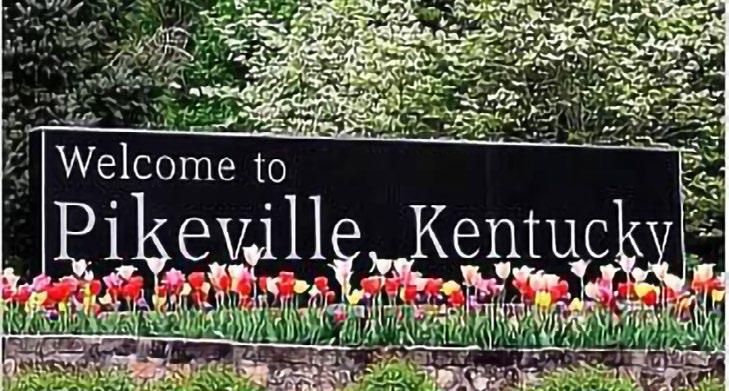
The City of Pikeville, “The City that Moves Mountains” is located in
Kentucky’s largest county, Pike County, in the far eastern region.
Pikeville was incorporated in 1824 and covers 22 square miles. It is one of the few towns in the eastern region to gain residents since 2000. Pikeville serves as a regional center for health, education, retail and services for Pike County and the surrounding Kentucky, West Virginia and Virginia areas.
The Pikeville Cut-Through Project is the second largest earth removal project in United States history. It has been called “the eighth wonder of the world” by the New York Times. Spearheaded by former Pikeville Mayor William C. Hambley, the Cut-Through Project officially began in November 1973 for the purpose of relieving the City of Pikeville of frequent flooding.
The project is a unique engineering feat that provides a shining example of cooperation among agencies on federal, state and local levels. The cut-through was completed in four phases spanning 14 years and costing approximately $80 million. It is a marvel that visitors cannot miss. Visit the newly opened Overlook Events Center at Bob Amos Park to view the entire project.
Located in the heart of Appalachia, Pikeville, and the vast majority of the city are designated Opportunity Zones. Pikeville is a town of roughly 7,000 people that boasts the University of Pikeville with its associated optometry and osteopathic medical schools, the fastest growing campus of the Big Sandy Community and Technical College, and Pikeville Medical Center, a large regional medical facility that employs roughly 3,000 people. In addition to these institutions, the city is home to the corporate offices of Community Trust Bank and is the 10th largest banking community in the state of Kentucky. Also, the Appalachian Wireless Arena is a 7,000 seat arena located in the heart of the downtown that attracts many nationally touring acts each year.
The City of Pikeville believes by supporting local entrepreneurs and preserving its historic environment, it has created a downtown community that hosts a healthy mix of businesses and activities that are crucial for continued economic development and success. The City has developed economic incentives for downtown businesses and property owners that are administered through the Pikeville Main Street Program.
The Kentucky Enterprise Industrial Park is ready for development. With 400 acres of land, utilities are in place and all major infrastructure projects are complete. Pikeville is ready to support your industry needs with a large workforce, university and community and technical college training programs to equip your workers with the skills they need, and a full array of support services





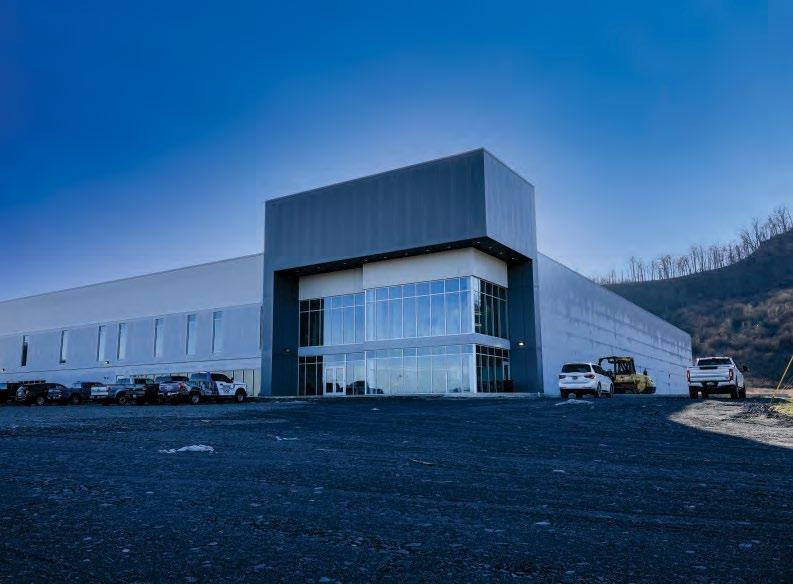
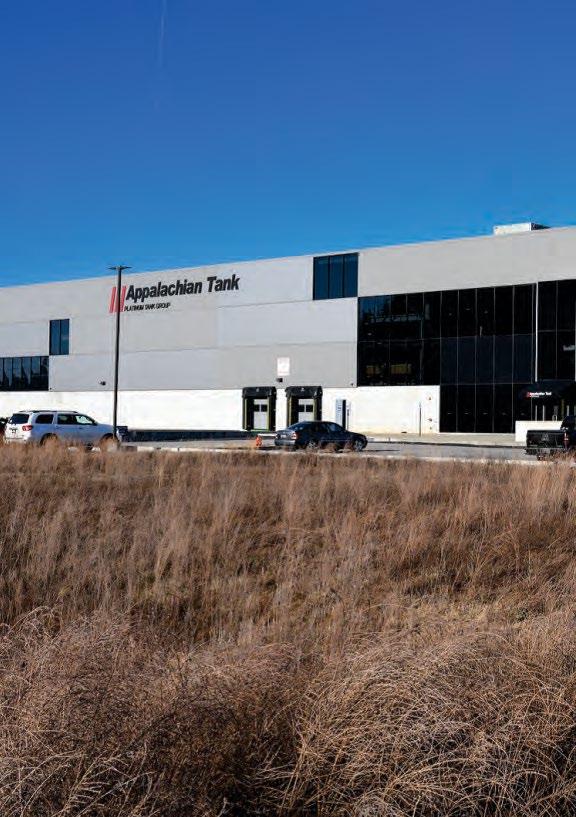
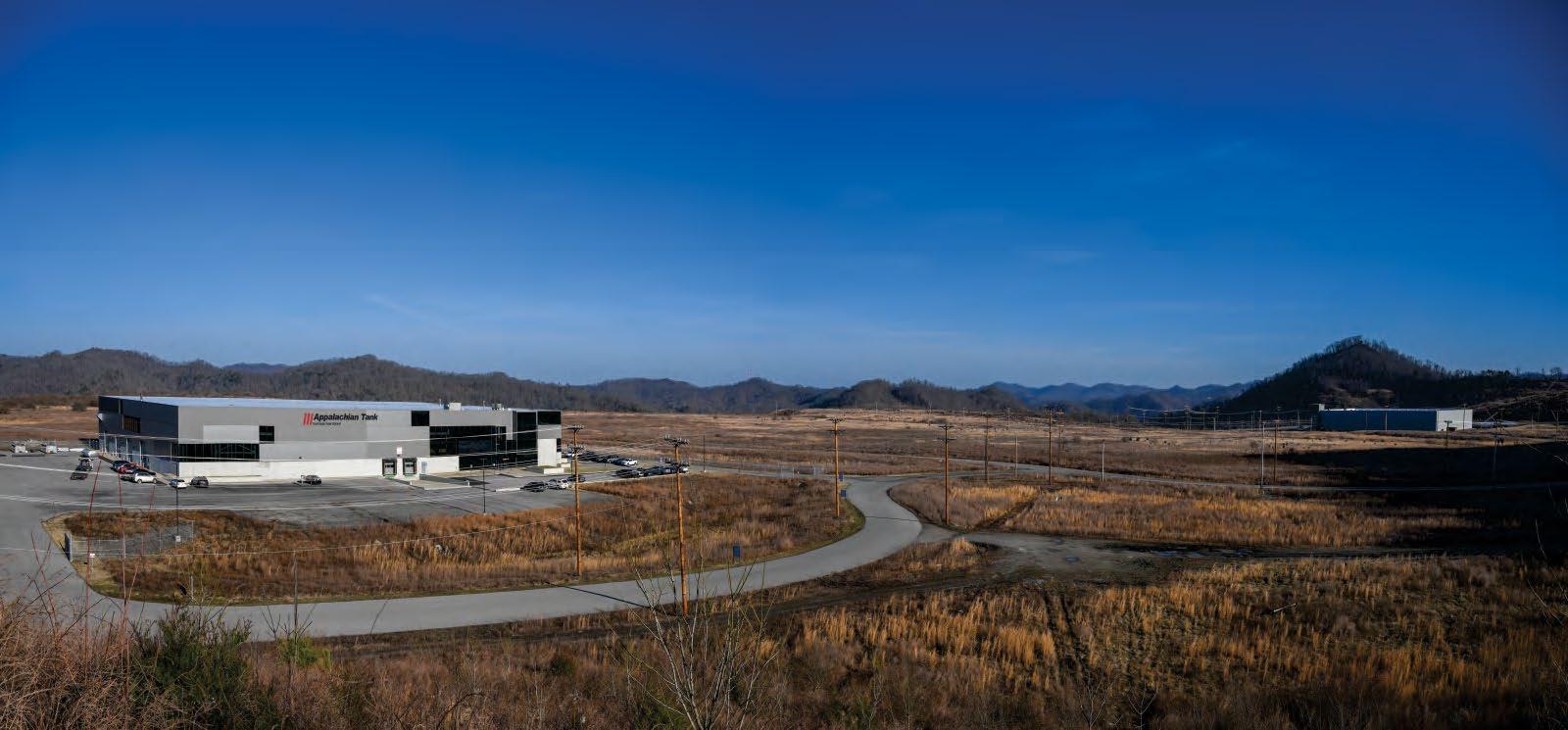
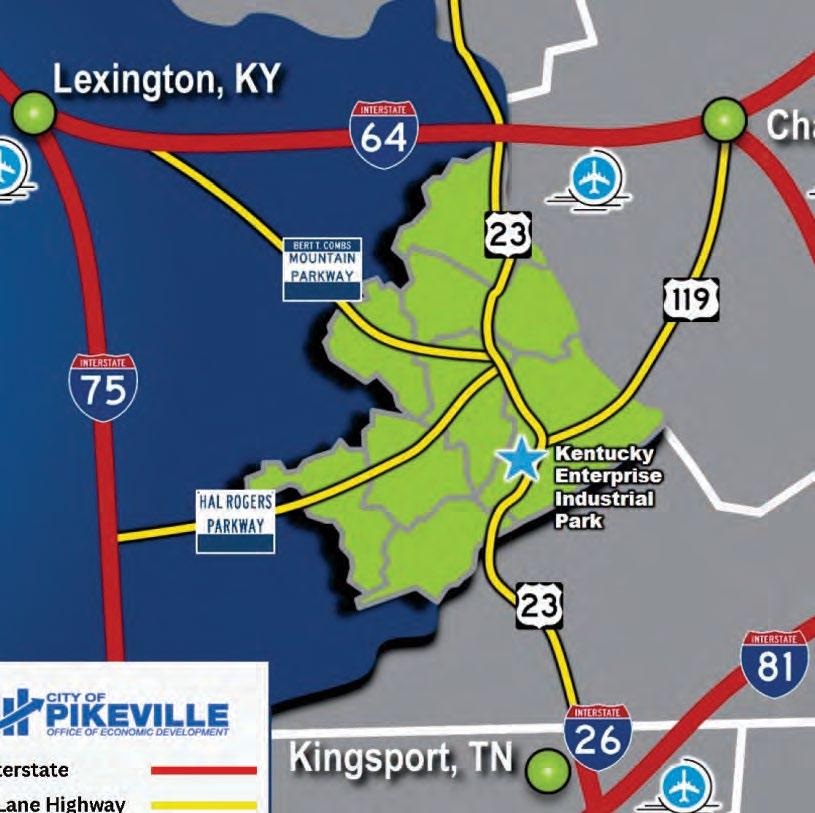
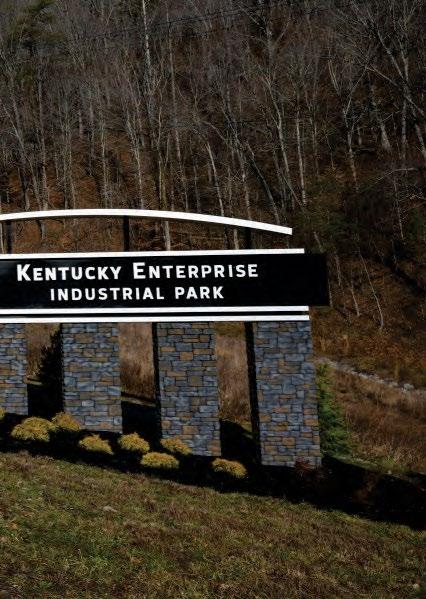
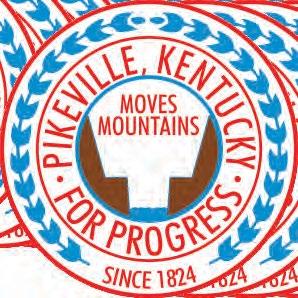


including fire, police, ambulance, public works, hospital, trauma center, hotels, restaurants, retail, and much more!
Pikeville’s tenacity and resilience through the years is a testament to the perseverance of its residents. The earliest settlers braved mountainous terrain and nearly absolute isolation. In recent times, these qualities have served residents well as they braved severe floods and economic vacillations in the coal industry. The City of Pikeville and its residents have met these challenges and surmounted them with creativity, fortitude and stamina, and at times, literally moving mountains.
For more information on Pikeville, Kentucky and what it can offer you and your business, visit whypikeville.com.
SOUTH WESTERN KENTUCKY: Come Grow With Us
An interview with Carter Hendricks, IOM, Executive Director of South Western Kentucky EDC
Briefly give us an overview of companies now in South Western Kentucky.
“South Western Kentucky is home to 65 manufacturers with 22 international companies representing eleven unique countries. Sectors include automotive, agriculture, advanced manufacturing, chemical, defense and aerospace, distribution, and electric vehicle parts.
Are you targeting certain industries for the future?
With a diverse base of existing industries, the SWK EDC remains focused on our priority sectors of automotive, agriculture, aerospace, advanced manufacturing and distribution. Moreover, we recently launched our Charged and Ready Initiative to recruit EV related projects and are partners in a multi-county regional partnership, Kentucky Cornerstone, to help recruit companies, especially EV, to Western Kentucky.
Tell us about your quality of life?
South Western Kentucky has an award-winning quality of life featuring abundant outdoor recreation and sporting options, charming communities with vibrant downtown events and festivals, housing well below the national average, and a low cost of living and even lower taxes.
Less than an hour to Nashville, TN, the region also allows residents to get a taste of the “big city” lifestyle with quick trips to professional sporting events, concerts, art museums, and more.
In South Western Kentucky, residents and companies enjoy the best of both words with easy access to a larger city while enjoying the daily benefits of a less taxing, more relaxing quality of life in the 3-county SWK region.
Awards: Most Patriotic City, Great American Defense Community, Tree City USA, All American City, TVA 10/10 Quality of Life
Describe the makeup of your workforce?
The SWK workforce is over 464,000 strong, young, diverse, and
growing with support from a 9-county labor shed. Christian County has the youngest population in Kentucky at 29.1 years old and Hopkinsville boasts the most diverse population per capita in the state.
The workforce is fueled by Fort Campbell’s military population which sees 500 military members depart the Army each month looking for work in our region. Additionally, military dependents are a vibrant part of our workforce. The region also boasts a strong manufacturing workforce and several strategic workforce pipeline initiatives.
What type of education and training opportunities exist for your workforce?
The SWK EDC partners with several education and workforce partners to ensure strong workforce pipelines for our companies and industries, including:
1. HOPFAME: A program at Hopkinsville Community College training students in advanced manufacturing and featuring an apprenticeship.
2. CCPS FUSION: A program with Christian County Public Schools to ensure K-12 students are better prepared for the workforce through tours, classroom visits, and work based learning experiences.
3. SWK IGNITE: A program with the regional K-12 schools to prepared and better connect high school students with job opportunities in manufacturing and engineering.
4. Fort Campbell TAP: A transition assistance program dedicated to assisting military members and dependents with information and job opportunities.
What type of recreational activities are there in or around the area?
With thousands of miles of shoreline and trails at nearby Land Between the Lake and several state parks, the SWK region boasts unmatched access to affordable, family friendly, and fun outdoor recreation including biking, hiking, boating, fishing, skiing, ATV riding, trail riding, and more.
Briefly discuss the modes of transportation to move good to and from the area.
The SWK features two interstates (I-24 and I-169), CSX and RJ Corman rail, air access through multiple regional airports and the Nashville International Airport, and river port access with four choices within 45-minute drive.
What else should we know about SWK economic development that you want us to know?
We have incredible development sites ready for the next company including two 100,000SF shell buildings, a CSX certified Select Site, and multiple interstate sites. We are ready to help the next company come grow with us in our less taxing, more relaxing region.”
For more information on South Western Kentucky, please visit the SWK EDC at www.southwesternky.com or call 270-885-1499. “Come Grow With Us.” X
100,000 SF SPEC BUILDING COMMERCE PARK
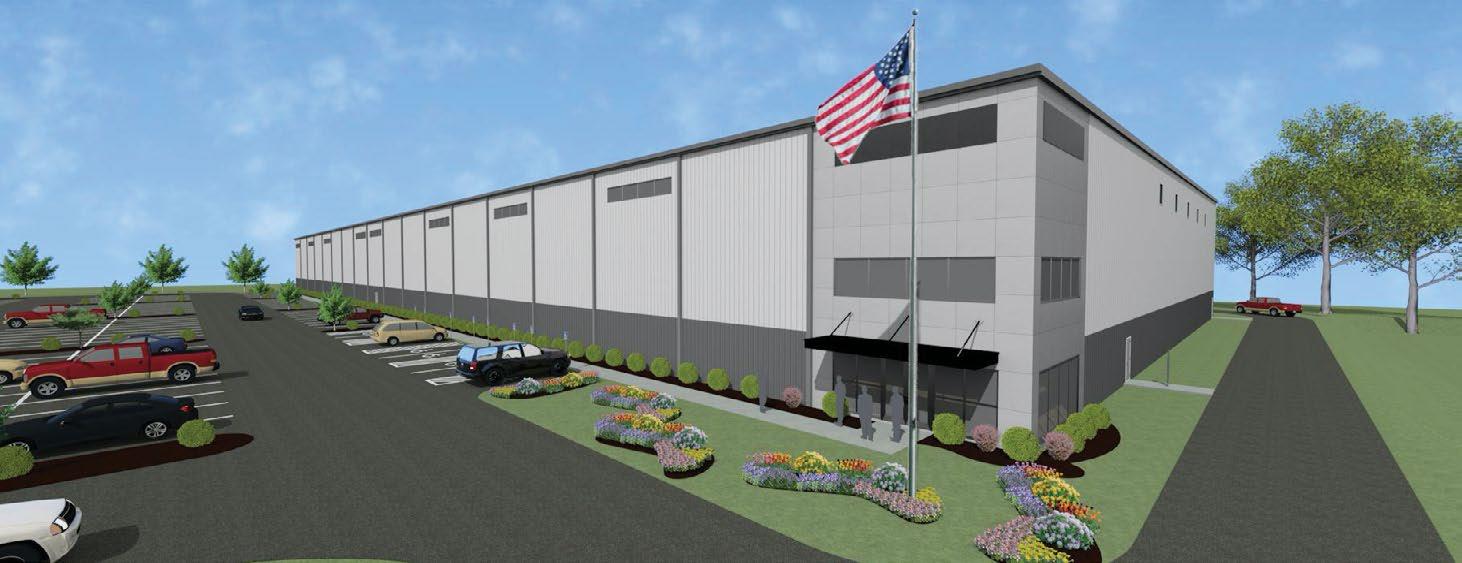
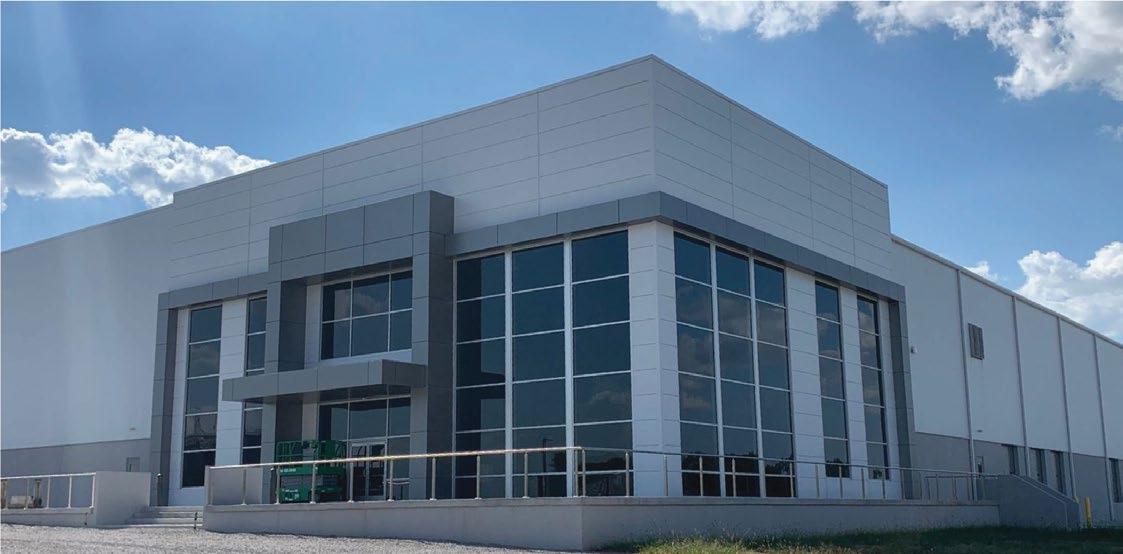
100,000 SF SPEC BUILDING 1-24 BUSINESS PARK COMING FALL 2023
86% of the US Population is within a day's drive of both buildings and within 250 miles of major markets.
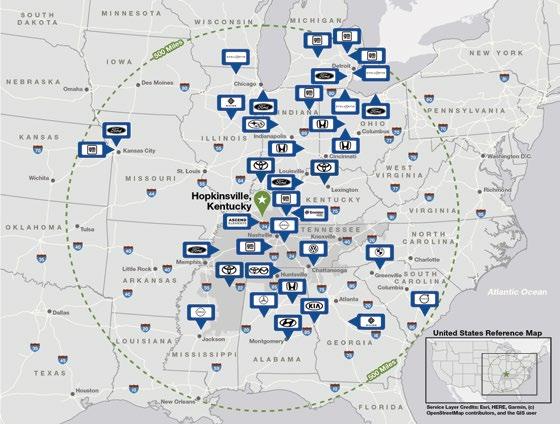
Both buildings are less than 90 mins from the Nashville International Airport
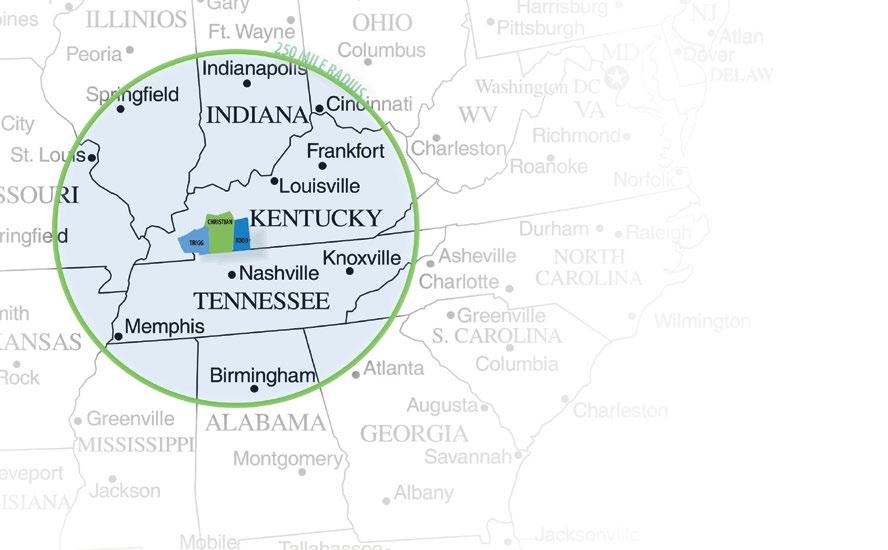
Access to Ft. Campbell Military with 400 - 600 soldiers each month exiting the military into our workforce



Emracing Its Roots To Advance Their Future KANSAS:
Kansas has been, and continues to be, aggressive in its efforts to grow their economy. Companies select Kansas due to the business advantages this state offers, which translates to increased performance and profits. Their business recruitment team creates customized incentive proposals based on capital investment, job creation, employee compensation, and training. They also coordinate with community
economic development professionals to develop proposals that include local incentives such as discounted building and land purchases, property tax reductions, build-to-suit agreements, and other financing packages.
Businesses of all types and sizes thrive in Kansas. Key industries include: Advanced Manufacturing; Aerospace &
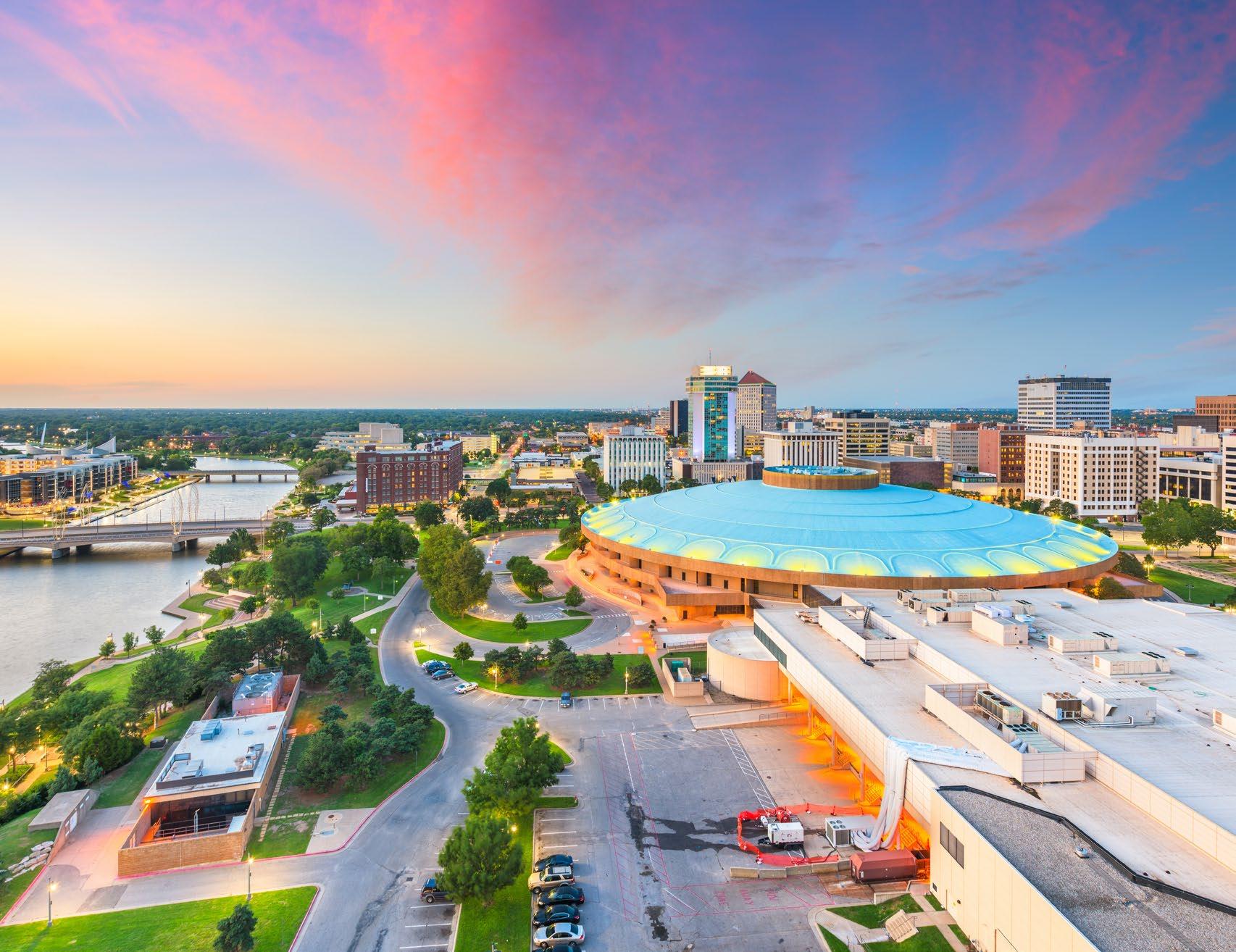
Defense; Agriculture; Animal Health; Biosciences; Corporate & Professional Services; Energy; Food Processing & Manufacturing; and Logistics & Distribution.

Ranging from fuselages to food and chemicals to computer electronics, there is a common thread – the use of the most advanced techniques and innovative materials and support from in-state centers of national prominence. Kansas is home to a vast network of diverse, quality, and precision manufacturing activities from their catalog of companies.
Kansas companies export $2.3 billion in aerospace products annually. This is nearly 20% of the state’s total exports. Kansas is home to two of the world’s premier general aircraft manufacturers – Bombardier Learjet and Textron Aviation’s Beechcraft and Cessna. Kansas’ manufacturers leverage low operating costs, a highly skilled workforce, and world-class research institutions to design and build some of the most iconic planes in the world.

Kansas is a culinary masterpiece providing a plethora of sustainable quality ingredients it takes to feed the world. The state has always been known for its robust agriculture and food industries. Commonly referred to as “The Breadbasket of the World,” Kansas has nurtured its reputation by consistently ranking #1 for wheat production in the country. In addition, its one of the top producers of grain sorghum and a variety of other commodities. Food companies range from small, family-owned to large, multi-national corporations and headquarters, all of which have found the economic benefit from Kansas’ worldrenowned logistics and distribution infrastructure.
Located in the heart of the U.S., Kansas offers companies an outstanding logistical advantage to help reach customers faster


and more efficiently. With more than 140,000 miles of roads and top-ranked interstates bisecting this state, you can get to the Pacific or Atlantic in four days or less. Kansas is served by four Class I and eleven Class III railroads on the sixth-largest rail network in the country. It is a good thing to be self-centered in Kansas.
For more information on all the opportunities in Kansas, please contact the Kansas Department of Commerce at 913-2058521 or visit their website at www.kansascommerce.gov/business .
KANSAS: DODGE CITY/FORD COUNTY Shovel Ready For Development
......................................................................................
The area of Dodge City and Ford County, Kansas has had a long history of supplying the right needs for industry from the early cattle drives to today’s agricultural, energy, and manufacturing markets. Ford County currently has two of the world’s largest beef processing facilities, National Beef and Cargill Meat Solutions, and six of the state’s major wind farms. It has also been ranked in the top 10 “Least Economically Stressed Counties” in the U.S. by the Associated Press and has become a growing center for the energy and tourism industries. Dodge City and Ford County offer businesses a hardworking labor force, high quality of life in the community, and lower costs of living.
Dodge City and Ford County have quick access to major U.S. routes, a BNSF railway, AMTRAC and commercial air services. The city and county are located within 100 miles of I-70 and less than 150 miles of I-135 and I-35. Southwest Kansas provides air services to two major connecting International airports in the U.S.
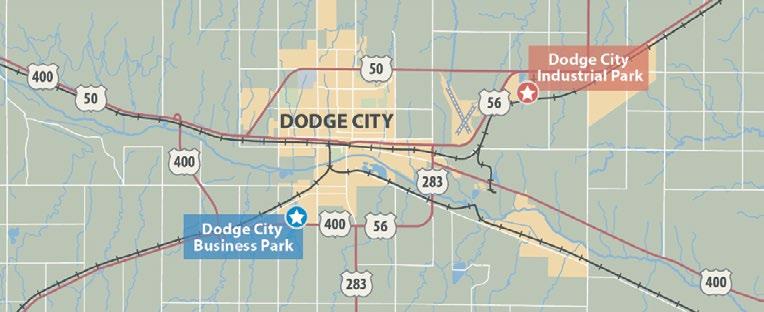
OPPORTUNITIES EXPANSION
The Hilmar Cheese Company (HCC) is currently under construction on a new cutting-edge cheese and whey production facility in Dodge City. The new facility is estimated to be a $600 million capital investment, create 260 jobs at the new location, and expect to spawn several new businesses and generate an additional 750 jobs within a 50-mile radius of the main production facility. Plans are to open in October 2024. Hilmar Cheese Company, founded in 1984, is one of the world’s largest producers of high quality American-style cheese and whey products, with customers in more than 50 countries. HCC CEO & President David Ahlem called Dodge City an “ideal choice” given its central location,, and expect to spawn several new businesses and generate an additional 750 jobs within a 50-mile radius of the main production facility. Hilmar Cheese Company, founded in 1984, is one of the world’s largest producers of high quality American-style cheese and whey products, with customers in more than 50 countries. HCC CEO & president David Ahlem called Dodge City an “ideal choice” given its central location, critical existing infrastructure, proximity to the growing local dairy industry, and business-friendly climate. Joann Knight, Executive Director of Dodge City/Ford County Development Corporation, stated that the economic impact to the community “will be compounded substantially by the additional dairies, transportation and services that will be required to support the processing facility once operational as well as the impact that the construction phase will have on our region.” Construction on the new facility began in 2022.
El Dorado, Kansas. Naturally Advantaged.
El Dorado is an ideal location for companies looking for a rich, pristine industrial water source and abundant accessibility to transportation, land and talent.

• 10 Million Gallons per DAY (MGD) of “firm or drought-resilient” water supply available for industrial use


• Located mid-point on the emerging I-35 Corridor Megalopolis

• Easy access to the supply chain –two interchanges with access to I-35 within two miles from industrial sites
316.321.1485
shoefgen@eldorado-inc.com
developeldorado.com
From beef processing to wind energy, and most recently, the major announcement of the addition of Hilmar Cheese, Dodge City and Ford County has an increasingly diverse industrial base. For more specific information, please contact the Dodge City/ Ford County Development Corporation at 620-227-9501 or email jknight@dodgedev.org .
KANSAS: El Dorado Naturally Advantaged with Abundant, Pristine Water
Nestled in the picturesque Flint Hills area of South-Central, Kansas – within the Wichita MSA – El Dorado is an ideal location for companies who seek to reap the rewards of a community rich in resources with abundant accessibility.
El Dorado can offer companies 10 MGD of firm or drought resilient water for daily use and has access to two Class 1 railroads – BNSF Railway and Union Pacific with a transload facility within five miles of most industrial sites.
With shovel-ready business and industrial parks, El Dorado has flat and even land, clear of flood plains and boasts an 800acre mega site ready for development. Land is generally priced 15-20% below U.S. prices and the City of El Dorado can provide steep discounts, incentives or may even offer FREE land, depending on capital investment.

Looking for incentives? El Dorado can offer a variety of state and local incentives, aid in workforce development and can address any transportation or infrastructure improvements.
El Dorado also offers a pipeline of educated, talented and technically skilled labor with more than 400,000 people in the workforce who live within a 60-mile radius. And, the community offers appealing residential quality of life factors and amenities including five new schools, a vibrant downtown, a new sports stadium and performing arts center. To learn more about El Dorado, Kansas, visit developeldorado.com.
KANSAS: Leavenworth County Designed to Deliver
Leavenworth County is made up of four business-friendly communities - Leavenworth, Lansing, Tonganoxie and Basehor, Kansas. Home to a vibrant manufacturing cluster that spans across several industries including food, furniture, metal, orthotics and clothing, Leavenworth County is also considered the “Intellectual Center of the Army”.
With a highly skilled workforce, training program resources and proximity to major interstates, Leavenworth County is a prime location. Situated in the heart of the global supply chain network and animal health corridor, Leavenworth County is an emerging location for companies looking to expand or relocate.
Through financing and incentive programs, the community can work directly with businesses considering a new location
or expansion in Leavenworth County, drawing on a range of private and public financing options. Leavenworth County also offers streamlined permitting and market-ready inventory. Learn more about Leavenworth County at lvcountyed.org.

KANSAS: SALINA A Community Centered On Your Success





Being located near the geographic center of the United States has a lot of advantages for business. Nestled at the crossroads of I-70 and I-135, Salina offers businesses easy access to a highly skilled and educated workforce of more than 213,000 and 45 million consumers within a single days’ drive.



Businesses here enjoy outstanding connectivity and endless shipping options. Trucks can be on the highway in minutes from any location in Salina. Air Cargo and freight services are available at the Salina Regional Airport, and a connection to the Union Pacific main line right in town, products and raw materials can be shipped by rail anywhere in the western twothirds of the country and elsewhere with intermodal options. Salina’s railroad connections also open up International markets to businesses from deep water ports on the West Coast and in the Gulf of Mexico.
Salina enjoys a diverse economy that includes several





manufacturing interests both large and small, a strong agricultural economy that supplies local food processors and beverage makers and creates strong demand for industries such as agricultural equipment manufacturing. Kansas is also poised to become a leader in alternative energies, particularly solar and wind. Salina is ready to support new businesses in these and other sectors with a business-friendly environment and attractive incentives that offer significant cost savings.
Salina also offers a safe, accessible, and connected community with a comfortable lifestyle for families and young professionals alike. The downtown area is the heart of Salina and is changing fast in support of its vibrant and growing community. Residents here enjoy a low cost of living and access to quality healthcare. Their K-12 schools provide an outstanding curriculum and with both a community college and university in town, higher educational opportunities abound. Kiplinger recently named Salina as the 9th cheapest place to live in America with populations under 50,000.
For more information on Salina, please contact the Salina EDO at 785-404-3131 or visit www.salinaedo.org X
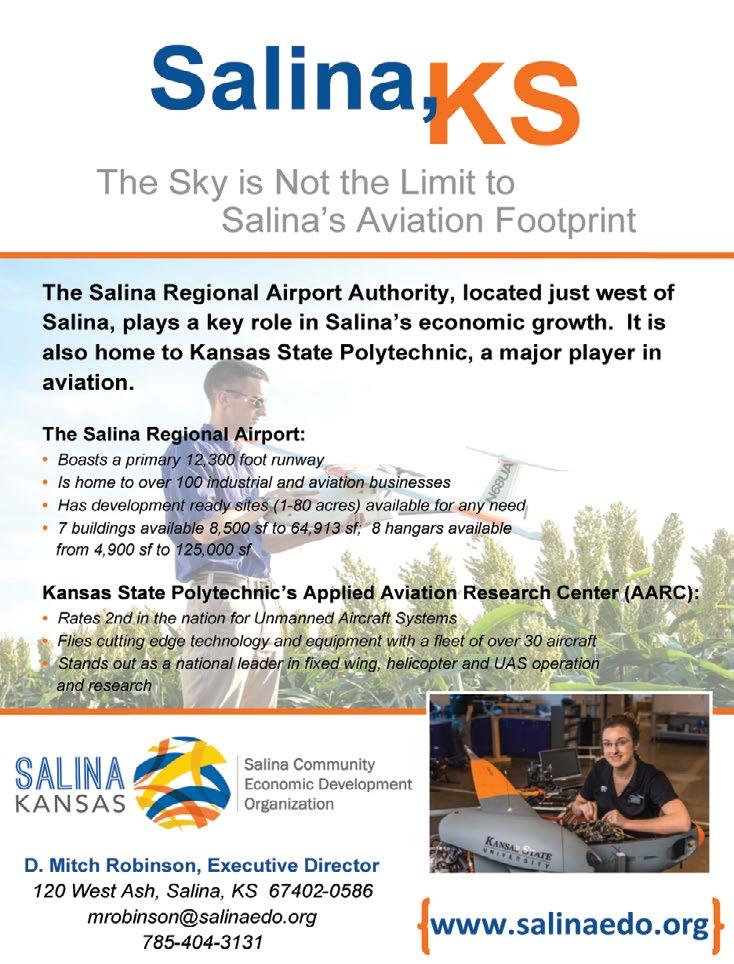
The Coca-Cola Company Plans to Build New fairlife® Production Facility in Upstate New York

Webster, NY
— The Coca-Cola Company announced that it has selected Webster, New York as its preferred location for a new fairlife production facility as part of the brand’s continued expansion in the Northeast market. The new ~100-acre facility will be located in the Town of Webster, just outside of Rochester, New York, and is expected to source from local milk co-operatives to produce fairlife’s high-quality, dairy-based beverages before distributing them to retailers across the region.
fairlife CEO Tim Doelman said, “Consumer demand for fairlife products is at an all-time high, and a new production facility will allow us to significantly increase capacity and deliver fairlife to even more households across the country. As we continue to grow in the Northeast, Webster’s proximity and access to best-in-class dairy farmers make it an excellent location to support our next phase of growth in the region and beyond. We are sincerely grateful for the collaboration from Governor Hochul and her administration throughout this process.”
The dairy industry is New York’s largest agricultural sector and contributes significantly to the state’s economy. The Town of Webster is well situated between high-quality dairy cooperatives in the Rochester and Niagara regions, with a surrounding workforce that has the relevant manufacturing and food and beverage experience, making it the ideal location for fairlife’s expansion.
“This decision by fairlife to expand their operations in Monroe County marks the next chapter in New York’s agricultural success story,” New York’s Governor Hochul said. “New York’s dairy industry serves as a crucial economic engine for our state, and this $650 million investment from fairlife will create jobs and economic impact, particularly in the Finger Lakes. Coming from a family of dairy farmers in Ireland, I am proud to have secured this major opportunity to position our state as one of the nation’s top dairy producers.”
Groundbreaking and construction of the new facility are expected to begin in Q4 2023, following due diligence and appropriate approvals. The facility is
Collaborative Effort Lead By St. Louis Regional Freightway Creates A Pipeline Of Rail-Accessible, Developer-Ready Sites
ST. LOUIS, MO — The St. Louis region is streamlining the site selection process for rail-accessible sites across the bi-state area. Through focused collaboration, the St. Louis region’s Class I railroads and economic development organizations, brokers and business leaders on both sides of the Mississippi River in Illinois and Missouri have identified the top rail-accessible industrial real estate sites in the region. They are also taking on previously overlooked sites that have potential for rail access. Eleven locations featuring heavy industrial user zoning are ready for developers who want to take advantage of the strong rail infrastructure and multimodal advantages in the bi-state area. Information about these sites can be found at https://www.thefreightway.com/real-estate/rail-access/
“We’re creating a pipeline of rail-served sites for the future and spotlighting rail sites that are currently ready to go,” said Mary Lamie, Executive Vice President of Multimodal Enterprises at Bi-State Development and head of the St. Louis Regional Freightway enterprise. The St. Louis Regional Freightway reviewed multiple sites throughout a 15-county area in southwestern Illinois and eastern Missouri, interviewed respective Class I railroads, and ultimately answered the question of
anticipated to be operational beginning in Q4 2025.
fairlife launched in 2012 with the belief that milk and its natural health benefits can be made even better and be used to create great-tasting products that nourish consumers and fit into their modern lifestyles. The company has since exceeded $1 billion in annual retail sales and offers a wide range of products including fairlife® ultra-filtered milk, Core Power® protein shakes, and fairlife® Nutrition Plan® meal replacement shakes.
The Coca-Cola Company has been a strategic partner to fairlife since it was launched in 2012 through the company’s ultimate acquisition of it in 2020. This proposed facility represents its ongoing investment in the continued growth of fairlife.
To learn more about fairlife, visit: www.fairlife.com.
whether the sites being explored were rail accessible or have potential rail access. “In typical St. Louis regional fashion, the sites that made it onto our list include service by at least one of the region’s six Class I railroads that connect to the East, West and Gulf coasts,” Lamie said. “Sites that include BNSF, Union Pacific, CSX and Norfolk Southern provide routes with high volume and scheduled service to East and West Coast ports. With help from the region’s four interstates and strategic location on the Mississippi River, 90% percent of freight from the St. Louis region moves throughout North America in two days and 100% in three days. This List is a new tool that will enhance our region’s economic development marketing efforts by spotlighting these rail-served sites.”
Mark Branstetter, Partner with Panattoni Development Company, sees tremendous value in the new list. “Coordinating a regional list of rail-served sites with the Class I railroads is saving time by eliminating uncertainty, and it helps draw attention to rail sites with significant useable acreage,” said Branstetter. “With cooperative and local carrier ownership of key rail routes, businesses choosing these sites will enjoy unparalleled rail service that supports industrial growth strengthened by intermodal capacity and proximity to suppliers.”
Governor Josh Shapiro and Re:Build Manufacturing Announce $81 Million Investment to Create Cutting-Edge Manufacturing Center, 300 Jobs in Westmoreland County, PA
Pittsburgh, PA – Governor Josh Shapiro joined leadership from Re:Build Manufacturing (Re:Build), the Regional Industrial Development Corporation (RIDC), and Pennsylvania leaders to announce an $81 million investment to create a major, innovation-focused manufacturing operation in the New Kensington Advanced Manufacturing Park that will create 300 high-quality jobs in Westmoreland County.
A leader in bringing high-tech manufacturing jobs back to the U.S., Re:Build’s operations at the new regional headquarters in New Kensington will focus on state-of-the-art fabrication, manufacturing, and integration and assembly projects in high-growth, innovation-driven industries including: energy, life sciences, robotics, electric mobility, satellite communications, and aerospace. The project will create Re:Build’s first ground-up manufacturing facility in the U.S. here in Pennsylvania.
“I’m proud that Re:Build chose Western Pennsylvania for this project – sending a strong signal to other companies that Pennsylvania is open for business and we want you here,” said Governor Shapiro. “Making our Commonwealth a leader in innovation, job creation, and economic development is a top priority for my Administration, and we stand ready to continue making projects like this one possible. The funding increases in my budget will help us attract more companies like Re:Build that want to come to Pennsylvania and help retain the growing businesses that are already here – and we will continue to drive innovation on a global scale.”
As part of the project, RIDC and the Westmoreland County Industrial Development Corporation (WCIDC) have entered into a purchase agreement with the park’s current owner, the Redevelopment Authority of the City of New Kensington, to acquire and redevelop the entire site. Beyond creating high-tech manufacturing jobs, Re:Build’s mission is to also provide the training needed to do this skilled work. The New Kensington site will work
BE NKY Growth Partnership Launches
New Name and Brand for Economic Development Company in Northern Kentucky Announced
FORT MITCHELL, Ky — BE NKY Growth Partnership (BE NKY) is the new name for the economic development company in Northern Kentucky, providing private and public sector leaders with the expertise they need to build their businesses and elevate the economy in Boone, Kenton, and Campbell counties.
BE NKY, previously Northern Kentucky Tri-ED, serving the region since 1987, led the successful location or expansion of 765 business projects, representing more than 74,150 primary industry jobs created with capital investment of more than $9.3 billion.
“BE NKY is the final step in a transition the Board of Directors started in 2018. We began working toward a new name in 2020, but had to pivot our strategy due to COVID,” said BE NKY CEO Lee Crume. “We are excited to launch the name BE NKY Growth Partnership, the last piece of the Board’s restructuring efforts.”
The new name evolved from the success of BE NKY’s Build + Elevate Northern Kentucky investor campaign in 2022, which raised more than $4.6 million, surpassing the $4.5 million goal.
The investor campaign funds four new areas of work: data-informed community decision-making, activating the Northern Kentucky Port Authority, delivering customized workforce solutions, and targeted business growth.
After seeing various options for a new name, Boone County Judge/Executive
with Westmoreland County Community College and other local vocational training institutions to help students develop the skills required to qualify for employment at the facility.
The company’s facility will be comprised of portions of five existing buildings and total 175,000 square feet once complete. Currently in serious disrepair, the facility will require $31 million in renovations, which will be funded by grants or loans from the Commonwealth, Westmoreland County, and the Richard King Mellon Foundation, as well as equity investments from the RIDC and WCIDC.
“We are thrilled to welcome Re:Build to the Pittsburgh region,” said Matt Smith, Chief Growth Officer of the Allegheny Conference on Community Development. “Re:Build is bringing to Westmoreland County and our entire region the vision and capacity that can accomplish something truly transformational for manufacturing and a new generation of manufacturers – not only here, but across the country. Manufacturing has deep roots in southwestern Pennsylvania. The products we made here were pivotal to the building of the modern world. This investment honors that legacy but puts a focus on building manufacturing’s future, which is happening now in the Pittsburgh region. We look forward to the opportunities Re: Build will spark – leveraging innovative technologies and new techniques – for the industry and the significant and exciting employment it will create for people here.”
Governor Shapiro’s budget proposal increases funding to attract and retain businesses in Pennsylvania, including:
• A 50 percent increase in the Manufacturing PA Innovation Program, which connects Pennsylvania’s universities with businesses to spur innovation and job creation here in the Commonwealth.
• A 25 percent increase in the PA Smart Program so students who are looking to continue on to higher education in a computer science or STEM program can do that.
• A $12 million increase for the Pennsylvania First Program to fund more expansion projects and bring future business investments and high paying jobs to the Commonwealth.
Gary Moore said he immediately liked “BE NKY.”
“During the investor campaign, we had great success with building and elevating, and that’s really what we do, so it was a natural fit for me,” said Moore.
The name also aligns the company with other local organizations, such as meetNKY or OneNKY Alliance.
“BE NKY Growth Partnership” reflects the team involved, which includes not only staff, but the public sector and private companies, all working together to achieve BE NKY’s vision and strategy for Northern Kentucky.
The goal is opportunity and prosperity for all Northern Kentuckians, and 67 organizations invested in the Build + Elevate investor campaign, including all three counties.
“I’m excited about BE NKY Growth Partnership because it truly is a partnership between the public and private sector unlike ever before,” said Kenton County Judge/Executive Kris Knochelmann. “It’s about a new energy, it’s about a new focus, it’s about being something more than we were before.”
Board of Directors Vice Chair James Dressman said the region wants to own what it means to “be Northern Kentucky,” and be proud of it, and Moore said this new name will help BE NKY convey who, where, and what the region is all about.
“BE NKY Growth Partnership is a fresh, forward-thinking name that reflects the team’s passion for excellence and commitment to the community,” said Board Secretary Ben Brandstetter.
Visit www.BE-NKY.com for more information.
Pharmavite LLC, Makers of Nature Made® Vitamins, Breaks Ground on New Production Facility in New Albany, Ohio to Support Continued Business Growth
Columbus, OH — Pharmavite LLC, a pioneer in the health and wellness industry, is breaking ground on a new 225,000-square-foot manufacturing facility in New Albany, Ohio. The new facility, which will create 225 new jobs within the Columbus Region, will support the growth of Pharmavite’s national vitamin and supplement portfolio, including its Nature Made® and MegaFood® brands.
With over 50 years of experience developing innovative vitamin and supplement solutions that are backed by science and adhere to strict manufacturing practices, Pharmavite recognizes consumers’ continued commitment to health and wellness through ever-evolving vitamin and supplement routines and is responding with expanded reach and the development of innovative offerings.
“The new facility that we’re breaking ground on today will enable Pharmavite to continue its growth and better serve consumers, who are more invested in their health and wellness than ever before,” said Pharmavite CEO Jeff Boutelle. “Gummies continue to be one of the fastest growing vitamin and supplement forms within the industry, and this facility will produce gummies and be the site of Pharmavite’s Gummy Innovation Center of Excellence.”
Magna International Expands In Brampton, Ontario With Advanced Manufacturing Investment Creating 560 New Jobs
BRAMPTON, ONTARIO —Magna International is expanding its already impressive footprint within the City of Brampton.
The company announced today it will be opening a 490,000 sq. ft. facility at 100 Ace Dr., a new, state-of-the art build by Panattoni Developments.
This investment by Magna, the largest of six investments announced today by the company, will create 560 new advanced manufacturing jobs in Brampton.
The City’s Economic Development team has worked tirelessly to offer a concierge service to remove red tape and expedite this investment, promoting it
Northern Kentucky Port Authority Announces Building Construction Slated to Start this Summer
FORT MITCHELL, KY — The Northern Kentucky Port Authority (NKPA) announced that a key piece of funding for the OneNKY Center was approved by the Kenton County Fiscal Court. The Court unanimously voted to provide credit enhancement for up to $10M in construction bonds that are scheduled to be issued by the Kentucky Association of County Officials (KACo) Finance Corporation and underwritten by Compass Municipal Advisors. The bonds are a critical component of the capital stack for the OneNKY Center, which will be owned by the NKPA.
“Bringing key regional organizations handling economic development, tourism, etc., together in the OneNKY Center will improve their ability to elevate Northern Kentucky, while increasing the efficiency of their backroom operations,” said Kenton County Judge/Executive Kris Knochelmann. “As we work to create a thriving and prosperous Northern Kentucky, we need every component of our community operating at the highest level, and the OneNKY Center will help us achieve that.”
The OneNKY Center, at the foot of the John A. Roebling Suspension Bridge, is a 43,000 sf Class A office building that will be the home of Northern Kentucky’s growth organizations. These include the OneNKY Alliance, Northern Kentucky Chamber of Commerce, meetNKY, BE NKY Growth Partnership, The Catalytic Fund of Northern Kentucky, Horizon Community Funds of Northern Kentucky, the Northern Kentucky Bar Association, and the Covington Life Sciences Partners, Inc. (CLSP). All tenants have committed to locating in the building.
“Having initiated this coalition of dedicated people and organizations, in partnership with the Catalytic Fund, working toward building a more meaningful
The company is investing more than $200 million into the initial construction of the new facility, machinery and equipment and anticipates production to begin by the end of 2024. The state-of-the-art facility will be located at 13700 Jug Street Road NW in New Albany.
“Pharmavite is proud to join the Columbus and New Albany communities, whose strengths and values align with Pharmavite’s focus on wellness and nutrition. We’ll be joining the area’s emerging science, innovation, and technology hub, thanks largely in part to the support of our public sector partners at the City of New Albany and Jobs Ohio, and we’re thrilled to already have the opportunity to give back to the community through partnerships with local non-profits like Pelotonia and Healthy New Albany,” said Pharmavite VP of Operations Kara Roeder.
This is Pharmavite’s fourth production facility and second investment outside of the Southern California-based company’s home state following its expansion with a new facility in Opelika, Alabama, which has grown to full capacity since opening in 2013. This latest project allows Pharmavite to continue bringing the gift of health to life through its Nature Made®, Nature Made® Wellblends, EQUELLE®, MegaFood®, Nurish by Nature Made®, and Uqora brands.
with site selectors and investors on a national and international scale.
Magna International will be manufacturing battery trays for electric vehicles at the site, bolstering the city’s world-class innovation and advanced manufacturing sectors. This builds on the City of Brampton’s ongoing support of our well-established automotive and parts manufacturing sector, including the Stellantis assembly plant, which will begin retooling and modernizing toward the company’s electric vehicle future at the end of 2024.
This investment further cements the company’s strong commitment to growth in the region, adding to the already impressive footprint of seven existing facilities, employing more than 2,000 people in Brampton
future for our community was a major priority for the OneNKY Alliance and was simply exhilarating,” said Karen Finan, President & CEO of OneNKY Alliance. “This project has been an important initiative for many key Northern Kentucky organizations over the past four years and now, we cannot wait to see what happens next.”
The Catalytic Fund led and aligned sources of funding for the OneNKY Center. Funding for the $26M building comes from the planned bond issuance in addition to the purchase of the land by St. Elizabeth Healthcare, funding from the CLSP for Covington Life Sciences Lab, the Haile Foundation, Horizon Community Funds, Durr Foundation, and Drees Foundation.
Jeanne Schroer, CEO of the Catalytic Fund of Northern Kentucky, noted that the OneNKY Center will add to the renaissance happening in the City of Covington.
“The location for the OneNKY Center is ideal. It will be a signature building at the front door to NKY,” said Schroer. “It will complement all the new development in the Roebling Point neighborhood while serving as a catalyst for exciting new developments along the riverfront and throughout the region.”
The building is 93 percent leased and will feature 44 underground parking spaces. After an RFP process, Corporex has been named the design build contractor. Construction is slated to start this summer.
“The OneNKY Center is a significant achievement for the Northern Kentucky Port Authority,” said NKPA Executive Director Christine Russell, VP of Strategy at BE NKY Growth Partnership. “Getting the building financed and leased represents a tremendous amount of collaboration between the OneNKY Alliance, Catalytic Fund, Kenton County, and many other organizations. I’d like to thank all our partners for their hard work in reaching this milestone.”
Lubbock Economic Development Alliance Announces the Creation of Nearly 150 Jobs and Introduction of Over $52 Million Dollars into the Lubbock Community
LUBBOCK, TX — The Lubbock Economic Development Alliance (LEDA) announced the expansion of Orbia’s Connectivity Solutions business Dura-Line into the Lubbock community. This expansion will drive the creation of 141 new full-time jobs and introduce over $52 million of capital investment. Leading in the global manufacturing and distribution of conduit, FuturePath, and cable-in-conduit, Orbia’s Dura-Line business delivers infrastructure solutions to transform connectivity in industries including telecommunications, enterprise networking, energy and transportation. The business announced its expansion into the Lubbock Logistics Center II located in the Lubbock Business Park, where it will manufacture plastic conduit for fiberoptic lines.
“We are experiencing unprecedented demand for our products. So, expanding in a strategic location with a highly skilled workforce was crucial to our business plan. Lubbock exceeds in both categories,” said Elad Shmulevich, Vice President of Global Operations at Orbia Connectivity Solutions (Dura-Line). Shmulevich continued, “The
Anovion Technologies Announces Plans for $800 Million Initial Investment in New Manufacturing Facility in Southwest Georgia
Atlanta, GA — Anovion Technologies
(Anovion),the climate tech-driven advanced materials company, announced that it has selected Decatur County in Southwest Georgia as the location of the Company’s first large-scale expansion of manufacturing capacity for production of its premium synthetic graphite anode materials. Anovion chose this location for its initial 1,500,000 square foot facility based on its proximity to existing and planned low- and carbon-free energy sources for power, short supply chains, access to existing rail infrastructure, highly valuable skilled workforce, and business-friendly environment, making Decatur County an ideal fit for Anovion’s new expansion site.
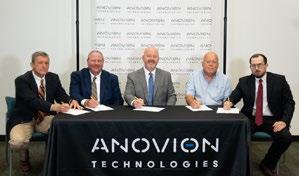
“Anovion conducted a thorough search to identify a location that addressed our energy, transportation, logistics, and human capital needs that would ensure we have the ecosystem in place to produce the highest quality and sustainable synthetic graphite anode material on the market today,” said Eric Stopka, Chief Executive Officer of Anovion. “Not only does existing infrastructure make Southwest Georgia an attractive location for Anovion’s new facility, but the proximity to other battery and EV manufacturing plants will allow us to further reduce our carbon footprint.”
“We’re proud to welcome Anovion to the No. 1 state for business that is fast becoming the e-mobility capital of the nation,” said Governor Brian Kemp. “Job creators like them are recognizing that every corner of our state has the resources and workforce needed for success. Having met their team personally, I look forward to celebrating their partnership with the hardworking Georgians of Decatur County.”
In October 2022, Anovion was awarded a grant totaling $117 million from the U.S. Department of Energy under the Bipartisan Infrastructure Law to help secure the domestic battery manufacturing supply chain for the country’s electrified future. This new expansion facility, which will be the first of this scale for the Company, and in North America, is a crucial first step to reshoring synthetic graphite anode production and is expected to initially produce 40,000 metric tonnes per annum once fully operational and create hundreds of high-quality local clean energy jobs for the surrounding region.
“It is my pleasure to welcome Anovion to Bainbridge,” said Bainbridge Mayor Edward Reynolds. “With an $800 million investment and the creation of over 400 high-paying, quality jobs, Anovion’s decision to locate in our community is a huge win. I know that our workforce is ready to embrace this opportunity and that we will all grow and prosper together.”
support we’ve received from the LEDA team and the Lubbock community so far has confirmed that we made the right decision.” John Osborne, CEO and president of LEDA, emphasizes the magnitude of this announcement for rural communities in West Texas.
“The expansion of Orbia’s Dura-Line business into the Hub City is monumental for the continued growth of rural Texas,” said Osborne. “Dura-Line’s production of conduit pathways for fiberoptic cables will enable the expansion of broadband connectivity to our rural communities in need, especially those in West Texas. I am proud to welcome Orbia and Dura-Line to Lubbock, as they have proven to be great corporate partners that share our West Texas values and vision for the future of this region.”
About LEDA
Since its inception in 2004, LEDA has assisted 231 companies with their expansion or relocation to Lubbock. These companies committed to creating 11,205 jobs and investing more than $2.2 billion in new capital improvements that have resulted in $1.9 billion in value-added impact to the Lubbock area.
Leading with Sustainability
Anovion will bring its innovative, sustainable, and technologically advanced manufacturing process to this new facility. This includes relying on the region’s rapidly decarbonizing energy mix to power the manufacturing process and introducing the Company’s proprietary furnace technologies that not only substantially reduce greenhouse gas emissions but also lays out a clear roadmap for Anovion to achieve a carbon-neutral footprint over time.
“Our long-term, strategic vision is to focus on growth and innovation, positioning Anovion as a leader in the U.S. energy transition and, equally importantly, securing a domestic source for these critical materials required for U.S. lithium-ion battery production. From continued research and development in electrochemistry to technology improvements in our production process and our ambitious climate tech initiatives, our goal is to become carbon-neutral over time, mitigate greenhouse gas emissions and ultimately position Anovion as the climate tech leader of the future,” commented Chip Dunn, Executive Chairman of Anovion. “We are excited to bring our full arsenal of innovation to our new Georgia facility to execute our long-term business strategy and, together, combat the climate crisis.”
In addition to efforts in Georgia, the Company is expanding its Anovion Center of Excellence and its hydro-powered, sister manufacturing facility near Niagara Falls, NY – notably one of the only qualified U.S. sources of battery-grade synthetic graphite that is commercially shipping product today.
About Anovion Technologies
Headquartered in Chicago, Illinois, Anovion Technologies is a U.S.-owned and U.S.-based, advanced materials business, currently one of America’s first commercial-scale manufacturers of premium, cleaner anode-grade synthetic graphite across its existing footprint near Niagara Falls, NY and Clarksburg, WV. As a leader in innovation and production of lithium-ion battery materials, Anovion began commercial production in early 2021 and is among a limited number of graphite anode producers in America to have successfully gained qualification for EV applications.
In 2022, Anovion was awarded a grant totaling $117 million from the U.S. Department of Energy to rapidly scale production capacity to meet growing demand with the construction of a large-scale factory in the southeastern U.S. and investment in its relocated Anovion Center of Excellence (ACE) in Sanborn, NY. Anovion is now commencing a multi-year expansion program of 150,000 metric tonnes of annual capacity for anode-grade synthetic graphite. To learn more about Anovion Technologies, please visit www.anoviontech.com.
St. Tammany Corporation Announces Development of Gulf South Commerce Park
MANDEVILLE, LA — Chris Masingill, CEO of St. Tammany Corporation, and John Crosby, CEO of Crosby Development, are pleased to announce the formal unveiling of the Gulf South Commerce Park at the intersection of Interstate 12 and Louisiana Highway 1088. St. Tammany Corporation has worked in collaboration with Crosby Development and St. Tammany Parish Government leadership on the creation of a comprehensive master plan for the 919-acre site centered around the Advanced Manufacturing and Logistics industries (AML). Thoughtful planning, deployment of smart growth practices, and implementation of appropriate infrastructure ensure the viability of this development, which will offer significant opportunities for job creation and business expansion within St. Tammany Parish’s footprint. The Gulf South Commerce Park is a major asset for St. Tammany Parish, the Greater New Orleans Region, and the State of Louisiana; the geographic positioning, existing industry base, and deep labor pool from which to draw all work together to set this development up for long-term sustainability.
The Gulf South Commerce Park will be developed in a multi-phased approach. Phase 1 encompasses the southernmost 189 development-ready acres, and immediate efforts have been concentrated on site preparation and project development of this portion of the site. The first stage of Phase 1 includes a portion dedicated to the potential construction of a spec building with the intent to accelerate the recruitment of future tenants.
“The Gulf South Commerce Park is a critical part of the future strategy for the Greater New Orleans Region, as it targets the recruitment of companies from the transportation, logistics, and distribution sector,” said GNO, Inc. CEO Michael Hecht. “GNO, Inc., will continue to support the buildout and promotion of the Commerce Park as we work with our partners on the Northshore to create logistics opportunities along the I-12 corridor.”
St. Tammany Corporation, as the chief economic development organization for St. Tammany Parish, works to intentionally position land and site assets within our community to be as viable as possible for new and existing companies. Recognizing
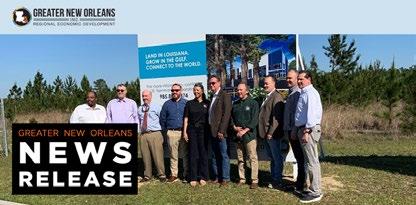
VT Mobile Aerospace Engineering, Inc. (MAE) to Add 200 Local Jobs in Alabama
MOBILE, Ala. — The Mobile Chamber is pleased to announce that VT Mobile Aerospace Engineering, Inc. (MAE) is expanding and will equip its existing facility to convert and modify Airbus 320 passenger jets into freight aircraft.
“This expansion project builds on Mobile’s soaring success in the aerospace industry, further solidifying our position as a global leader,” said Mobile Chamber President and CEO Bradley Byrne. “The growth of VT Mobile Aerospace Engineering exemplifies the collaborative efforts of our city and county in fostering economic development to propel Mobile’s aerospace sector forward.”
The company, located at 2100 Aerospace Drive on the Brookley Aeroplex in Mobile, currently has 579 full-time employees. This expansion project will add 200 new full-time jobs by the end of 2025.
“This forthcoming expansion is the latest example of Mobile’s growing role in the global aerospace industry. Decision makers across the aerospace world know Mobile, Alabama, and they know what our workforce continues to do here every day. VT-MAE has a long and successful history at Brookley, and we are excited to see them continuing to grow and invest in our community.” said Mobile Mayor Sandy Stimpson.
“The Mobile County Commission is delighted to support this VT Mobile Aerospace Engineering expansion, which will add more new jobs and further stimulate the continued growth of Mobile County’s aerospace industry ecosystem,” said Mobile County Commission President Connie Hudson.
the advantageous geographic location of St. Tammany along the I-12 corridor, St. Tammany Corporation initiated a two-part program of work. Firstly, retool a unique existing zoning designation in our community, Advanced Manufacturing and Logistics (AML), which provides for the location of large-scale industrial facilities for operations such as research and development; transportation, warehousing, and logistics; and advanced manufacturing. Secondly, develop a logistics corridor initiative, the master planning of a large tract of land within the corridor for the sole purpose of attracting and recruiting major high-value AML related economic development projects.
St. Tammany’s five-year strategic economic development plan, THRIVE2023, noted tactics for enhancing the competitiveness of land and site assets as an important component of the overall economic development strategy. The unveiling of this commerce park is the culmination of long- term collaboration and planning among multiple partners and stakeholders and the realization of the vision laid out in THRIVE2023.
In addition to St. Tammany Corporation, Crosby Development, and St. Tammany Parish Government, partners in this endeavor include Cleco Power, Development Counsellors International, GNO, Inc., and Louisiana Economic Development. As a result of St. Tammany Corporation’s partnership with Cleco Power, the organization recently had the opportunity to introduce the Gulf South Commerce Park’s branding, concept, and site design to a group of global site selection experts at the Site Selectors Guild Annual Conference in San Antonio, Texas. The reveal has garnered positive reception from leading site selectors, and the team continues to facilitate project inquiries on a regular basis.
More information about Gulf South Commerce Park can be found at GulfSouthCommercePark.com.
VT Mobile Aerospace Engineering is a global technology, defense and engineering group with a diverse portfolio of businesses across the aerospace, smart city, defense and public security segments with proven solutions for nearly every stage of an aircraft’s life cycle. Through passenger-to-freighter conversion, they give aging aircraft a new lease on life.
“VT MAE has long been a prominent player in the Mobile region’s aerospace/ aviation cluster, and these growth plans will solidify the future for the company’s operations at Brookley,” said Greg Canfield, Secretary of the Alabama Department of Commerce. “It’s very satisfying to see our relationship with VT MAE deepen with a major investment and the creation of new jobs.”
Operations for this expansion are expected to begin by the end of June 2023.
About the Mobile Chamber
The Mobile Chamber is a private business organization with more than 1,700 members and the economic developer for the City of Mobile and Mobile County. Over the last decade, Mobile’s economic development efforts have created 7,495 new jobs, retained 692 existing jobs, recruited 27 new businesses and expanded 59 area companies. Capital investments for projects have topped $5.3 billion. These economic development achievements are supported by public and private investors through the Chamber’s Partners for Growth campaign. Additional information can be found on the Mobile Chamber’s website, Facebook, Instagram, LinkedIn, Twitter and YouTube.
Raytheon Technologies’ Pratt & Whitney Business Announces Plans for $255M Investment in Oklahoma City Sustainment Center Near Tinker AFB
Oklahoma City, OK — Pratt & Whitney, a Raytheon Technologies business, announced its plans to invest $255 million through 2028 in a world-class sustainment facility in Oklahoma City, Okla. The new 845,000-square-foot facility will act as a hub for depot operations for all Pratt & Whitney military engines, including those for the F-35, C-17, F-22, F-15, F-16, B-52, and E-3 AWACS.
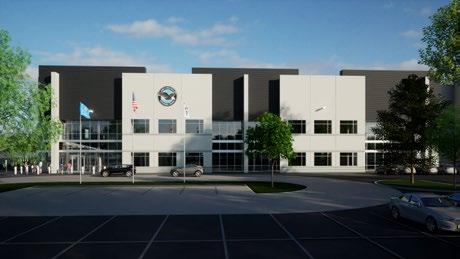
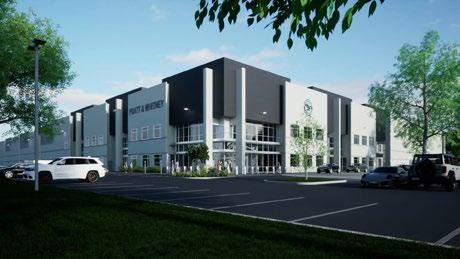
This is an exciting announcement for Oklahoma and our growing international dominance in the aerospace and defense industry,” said Oklahoma Governor Kevin Stitt. “This $255 million investment in a world-class sustainment center helps strengthen Oklahoma’s position as the MRO capital of the world and I am thrilled for Pratt & Whitney to continue to invest and expand in our state.”
“Pratt & Whitney’s Oklahoma City site plays a critical role in our global sustainment network,” said Jill Albertelli, president, Pratt & Whitney Military Engines. “Last year, the team achieved record output for the F117, F119, and F135 Heavy Maintenance Centers—this investment in a new facility will further expand our capabilities and reaffirm our commitment to our customer for years to come. We are grateful for the support provided by our partner, the United States Air Force, and by the state of Oklahoma and the local community.”
Pratt & Whitney’s Oklahoma City site is part of a global sustainment network—complimenting activations in Australia, Japan, Netherlands and Norway and U.S. locations in Marine Corp Air Station Cherry Point in North Carolina, Naval Air Station Jacksonville in Florida, and West Palm Beach. As the only site capable of performing all F135 power module scope levels, the new Oklahoma City Sustainment Center facility will increase the site’s maintenance, repair, and overhaul capabilities as the F135 program continues to expand.
“Expanding the Oklahoma City Sustainment Center is a direct investment in improving our military’s ability to meet national security objectives,” said Congressman Tom Cole (OK-04). “This facility will play a particularly important role in rapidly delivering the F135 engine core upgrade to the F-35 fleet, which is critical to ensuring all the services have the capabilities they need to fight an advancing threat starting in 2028.”
Pratt & Whitney’s Engine Core Upgrade (ECU) is a block upgrade for the F135, with the objective of providing an affordable, low risk, and agile pathway to fielding meaningful propulsion capability for all F-35 customers. ECU leverages Department of Defense investments in adaptive technology to deliver the advanced capability needed for Block 4 and beyond, while maintaining the variant-commonality and international partnership approach that the joint program was built upon.
Activated in 2014, Pratt & Whitney’s Oklahoma City F135 Heavy Maintenance
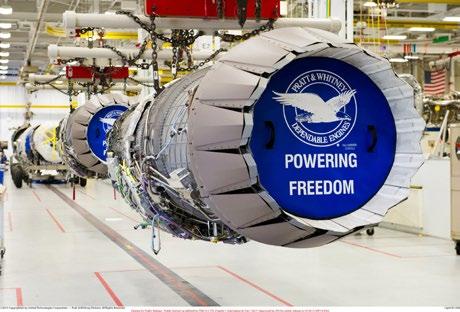
Center is responsible for the majority of the F135’s maintenance work. Last year, the site produced 73 power modules on a requirement of 60 modules—a 43% increase from 2021, or 61% of the total power module output for the sustainment network. This year, site will be responsible for a requirement of 78 production power modules.
“Pratt & Whitney has a long history in Oklahoma City, and we congratulate them on this new facility, which enhances their efficiency and ability to serve the U.S. Air Force,” said Oklahoma City Mayor David Holt. “Tinker is a cornerstone of Oklahoma City’s economy and culture, and supporting companies that support the base is important to our entire city. Pratt & Whitney’s investment in our city, and in the jobs added with this new facility, is significant and appreciated.”
The salary for new positions will be upwards of $80,000 dependent on skills and experience. New jobs will be primarily engineering and procurement functions.
“We have been honored to partner with Pratt & Whitney and coordinate the Oklahoma City team as they developed this project,” said Christy Gillenwater, President and CEO of the Greater Oklahoma City Chamber. “We appreciate the work of our additional partners, including the Oklahoma Industries Authority and Alliance for Economic Development for their work on the site acquisition. Pratt & Whitney has been a critical part of our business community for many years, and we look forward to a long relationship, working together to support their mission.”
Pratt & Whitney has an extensive history in Oklahoma, dating back to the establishment of an Army depot for the C-47 Skytrain Assembly in the 1940s. Today, the Oklahoma City site employs more than 450 full-time employees and an additional 450 partner contractors across a number of disciplines including engineering, data analytics, materials and logistics, quality, and procurement. This new facility, comprised of offices, meeting and collaboration spaces, sustainment center, and onsite exercise facility, will consolidate six existing sites, bringing all disciplines into two locations: Pratt & Whitney’s Oklahoma City Sustainment Center and Tinker Air Force Base’s Air Logistics Complex.
About Pratt & Whitney

Pratt & Whitney is a world leader in the design, manufacture and service of aircraft and helicopter engines, and auxiliary power units. To learn more visit www.prattwhitney.com. To receive press releases and other news directly, please sign up here.
About Raytheon Technologies
Raytheon Technologies is the world’s largest aerospace and defense company. Our global team of 180,000 employees pushes the limits of known science and redefines how we connect and protect our world. We are advancing aviation, building smarter defense systems and creating innovations to take us deeper into space. The company, with 2022 sales of $67 billion, is headquartered in Arlington, Virginia.
ALABAMA
ARIZONA
Cullman Economic Development Agency
Dale Greer
P.O. Box 1009, Cullman, AL 35056 256-739-1891
daleg@cullmaneda.org
www.cullmaneda.org
Etowah Economic Alliance

Shane Ellison
800 Forrest Avenue Suite 220E Gadsden, AL 35901 256-456-9938
www.littlecanoecreek.com
Gadsden Industrial Development Authority
David Hooks, Executive Director
1 Commerce Square Gadsden, AL 35901 256-543-9423
davidhooks@gadsdenida.org www.gadsdenida.org
Elmore County Economic Development


Cary Cox
P.O. Box 117, Wetumka , AL 36092 334-514-5843 cary.cox@elmoreeda.com www.elmoreeda.com
HudsonAlpha Institute for Biotechnology
Abbie Ruesy
601 Genome Way Huntsville , AL 35806 256-327-9591 aruesy@hudsonalpha.org www.hudsonalpha.org
Tuscaloosa County Economic Development Authority
Justice Smyth, Executive Director P.O. Box 2667, Tuscaloosa, AL 35403 205-349-1414 info@tcoeda.com www.tcoeda.com

Arizona Regional Economic Develoment


Mignonne Hollis, Executive Director 750 E. Bartow Drive Suite 16 Sierra Vista, AZ 85635 520-458-6948
hollism@aredf.org www.aredf.org
City of Flagstaff Economic Development

John Saltonstall, AZED Pro Business Retention & Expansion Manager Economic Vitality Division
City of Flagstaff 211 W. Aspen Avenue Flagstaff, AZ 86001 Office 928-213-2966

Cell 928-606-9430
jsaltonstall@flagstaffaz.gov www.flagstaffaz.gov
Pinal Alliance for Economic Growth
Patti King, Executive Mgr. 17235 N. 75th Avenue Suite D-145 Glendale, AZ 85308 520-836-8686 pking@pinalalliance.org www.pinalalliance.org
Salt River Project (SRP)
Karla Moran P.O. Box 52025 Phoenix, AZ 85072-2025 602-236-2396
Karla.moran@srpnet.com www.powertogrowphx.com
ARKANSAS Chaffee Crossing
Daniel Mann, Executive Director 7020 Taylor Avenue Fort Smith, AR 72916 479-452-4554
daniel@chaffeecrossing.com www.chaffeecrossing.com
CALIFORNIA
City of Eastvale
Gina Gibson-Williams
Economic Development Manager
12363 Limonite Ave. Suite 910 Eastvale, CA 91752
951-703-4425
ggibson-williams@eastvaleca.gov
www.eastvaleca.gov
Ouachita Partnership for Economic Development
James Lee Sillman
Executive Director
625 Adams Aveune
Camden, AR 71701
870-836-2210
870-836-8899 (f) director@teamcamden.com www.teamcamden.com

East Arkansas Crossroads Coalition


Alicia Woolman 1790 N. Falls Boulevard, Suite 2 Wynne, AR 72396 870-238-5300
crossroads@crossroadscoalition.org www.crossroadscoalition.org
Mississippi County Economic Development

Clif Chitwood 4701 Memorial Drive
Blytheville, AR 72315 870-532-6084
clif@cottontosteel.com www.cottontosteel.com
City of Siloam Springs

City of Surprise
Mike Hoover
16000 N Civic Center Plaza Surprise, AZ 85374 623-222-3328
Mike.hoover@surpriseaz.gov
www.surpriseaz.gov
Don Clark
Community Development Director
P.O. Box 80
Siloam Springs , AR 72761
479-238-0930
dclark@siloamsprings.com whysiloam.com
City of Moreno Valley Economic Development

Mike Lee
Economic Development Director

14177 Frederick Street Moreno Valley, CA 92553 951-413-3460
mike@moval.org
www.morenovalleybusiness.com

City of Ontario Economic Development
Jennifer McLain Hiramoto
Economic Development Director 303 East B Street Ontario, CA 91764 909-395-2295


JHiramoto@ontarioca.gov
www.ontariothinksbusiness.com
Greater Irvine Chamber Pepper Russell 36 Executive Park Suite 100 Irvine, CA 92614 949-502-4129

prussell@irvinechamber.com
www.irvinechamber.com

COLORADO
City of Canon City
Rick Harrmann
128 Main Street Canon City, CO 81212 719-276-5279
rlharrmann@canoncity.org
www.canoncity.org
FLORIDA
City of Fountain Economic Development Commission

Kimberly A. Bailey
Economic Development/ Urban
Renewal Director
116 S. Main Street Fountain, CO 80817
719-322-2056
kbailey@fountaincolorado.org
www.fountaincolorado.org
Grand Junction Economic Partnership
Robin Brown, Executive Director
122 N. 6th Street Grand Junction, CO 81501 970--245-4332
robin@gjep.org www.gjep.org
CONNECTICUT
Town of Berlin

Chris Edge Director
240 Kensington Road Berlin, CT 06037
860-828-7005
cedge@town.berlin.ct.us
www.town.berlin.ct.us
DELAWARE
Kent Economic Partnership
Linda Parkowski
Executive Director
555 Bay Road
Dover, DE 19901
302-678-3057
info@ccede.com
www.choosecentraldelaware.com

Wilmington Economic Development
Jeff Flynn
800 N. French St., 3rd Floor
Wilmington, DE 19801
302-576-2128
jflynn@wilmingtonde.gov
www.wilmingtonde.gov

City of Sanford
Tom Tomerlin
Economic Development Director


300 North Park Ave. Sanford, FL 32771 407-688-5015
tom.tomerlin@sanfordfl.gov www.sanfordfl.gov
City of Titusville
Lisa Nicholas
555 South Washington Avenue Titusville, FL 32796-3584
321-567-3774
economicdevelopment@titusville.com www.YEStitusvilleFL.com

Greater St. Petersburg Area Economic Development Corporation


J.P. DuBuque
President and CEO
100 2nd Ave N Ste 130 St. Petersburg, FL 33701 727-388-2906
jpdubuque@stpeteedc.com
StPeteEDC.com/BurgBiz
Haines City Economic Development Council, Inc.
Cyndi Jantomaso, President Post Office Box 3845
Haines City, FL 33845-3845
863-422-2525
863-206-0007
cyndi@hainescityedc.com
www.hainescityedc.com
Hernando County Office of Economic Development


Valerie M. Pianta, MEDP, Economic Development Director
15800 Flight Path Drive
Brooksville, FL 34604 352--540-6400
vpianta@hernandocounty.us
www.hernandobusiness.com
Holmes County Development Commission

Joe Rone, Executive Director 106 E Byrd Avenue Bonifay, FL 32425 850-547-6154
jrone@westflorida.coop hcdc1978@gmail.com www.holmescountyedc.com
Indian River Chamber of Commerce

Helene Caseltine Economic Development Director 1216 21st Street Vero Beach, FL 32960 772-567-3491 helenec@indianrivered.com www.indianrivered.com
Lake County Economic Growth
Mary Ellen Stern, Executive Director 315 W. Main Street Tavares, FL 32778 352-343-9647
maryellen.stern@lakecountyfl.gov www.lakecountyfl.gov

Osceola County


David Rodriguez, Economic Development Manager 1 Courthouse Square, Suite 4400 Kissimmee, FL 34741 407-742-0620 407-742-4202 (f) david.rodriguez@osceola.org www.chooseosceola.com www.osceola.org
Pasco Economic Development Council

Bill Cronin, President & CEO 16506 Pointe Village Drive, Suite 101 Lutz, FL 33558 813-926-0827 813-926-0829 (f) bcronin@pascoedc.com pascoedc.com
Pinellas County Economic Development

Dr. Cynthia Johnson, EDFP Director 13805 58th Street North, Suite 1-200 Clearwater, FL 33760 727-464-7332
cyjohnson@pinellascounty.org
www.pced.org
Santa Rosa County EDO
Shannon Ogletree, , Executive Director 6491 Caroline Street, Suite 4 Milton, FL 32570-4592 850-623-0174
Shannon@sant arosa.fl.gov
www.santarosaedo.com
City of St. Cloud

Antranette Forbes, Economic Development & Special Projects Manager 1300 9th Street St. Cloud, FL 34769 (407)957-7234
antranette.forbes@stcloud.org
www.stcloud.org
Tallahassee-Leon County Office of Economic Vitality

Keith Bowers, Director 315 S. Calhoun Street, Suite 110 Tallahassee, FL 32301 850-219-1080
kbowers@oevforbusiness.org
www.oevforbusiness.org
GEORGIA

City of College Park
Artie Jones III
Director of Economic Development 3667 Main Street College Park, GA 30337 404-305-2052

404-305-2057 (f)
artiejones@collegeparkga.com
www.collegeparkga.com/
City of East Point
Maceo Rogers CEcD
2757 East Point Street
East Point, GA 30344

404-270-7057
jmrogers@eastpointcity.org
www.eastpointcity.org
Forward Forsyth
Slade Gulledge
P.O. Box 1799
Cumming GA 30028
770-887-6461
770-842-1170
sgulledge@forwardforsyth.org
www.forwardforsyth.org

Liberty County Development Authority


Ronald Tolley, CEO
425 W. Oglethorpe Highway
Hinesville, GA 31313
912-977-4147
Ron.tolley@comegrow.global
www.comegrow.global
Putnam Development Authority
Matt Poyner
Econmical Devleopment Director
117 Putnam Drive, Eaton, GA 31024
706-816-8099
mpoyner@putnamforward.dev www.putnamforward.dev
.......................................................................
Valdosta-Lowndes County Development Authority

Andrea Schruijer, Executive Director
P.O. Box 5185 Valdosta, GA 31603-1963
229-259-9972
aschruijer@buildlowndes.com
www.buildlowndes.com
ILLINOIS
City of Highland Economic Development
Mallord Hubbard
1115 Broadway, P.O. Box 218 Highland, IL 62249-0218
618-654-9891
618-654-4768 (f)
mhubbard@highlandil.gov
www.highlandil.gov

City of Litchfield Ecnomic Development
Austin Edmondson
120 E. Ryder Street Litchfield, IL 62056 217-324-8151
cityadm@cityoflitchfieldil.com
www.litchfieldil-development.com

City of Marshall
Nora Swalls Economic Development Director
201 S. Michigan Ave Marshall, IL 62441 217-826-2034
nswalls@marshall-il.com
www.marshall-il.com
Alliance STL | St. Louis Regional Economic Development
Steven S. Johnson. CEO One Metropolitan Square Suite 1300 St. Louis, MO 63102 314-444-1105
sjohnson@alliancestl.com alliancestl.com
Village of Arlington Heights Business & Economic Development
Charles Witherington-Perkins Director of Planning & Community Development
33 S. Arlington Heights Arlington Heights, IL 60005 847-368-5220 cperkins@vah.com www.vah.com
INDIANA
Go Topeka
Molly Howey, CEcD President
719 S Kansas Ave. Suite 100 Topeka, KS 66603 785.231.4707
mhowey@gotopeka.com
www.gotopeka.com

Champaign County Economic Development Corporation



Carly McCrory-McKay, Executive Director
1817 S. Neil Street, Suite 100 Champaign, IL 61820
217-359-6261
carly@champaigncountyedc.org
www.champaigncountyedc.org
City of Vandalia
Latisha Paslay
431 W. Gallatin St. Vandalia, IL 62471
618-283-1152
618-335-9510 (Mobile)
vandaliaed@vandaliaillinois.com www.vandaliaillinois.com
Intersect Illinois
Dan Seals, CEO Senior Vice President Business Development
230 W. Monroe St. Chicago, IL 60606 312-667-6013
www.intersectillinois.org

Huntington County Economic Development


Mark Wickersham, Executive Director 8 West Market Street Huntington, IN 46750 260-356-5688 mark@hcued.com www.hcued.com
Miami County Economic Development Auth.
Jim Tidd
1525 W. Hoosier Boulevard Peru, IN 46970 765-689-0159
jtidd@miamicountyeda.com
www.miamicountyeda.com
KANSAS

Dodge City/Ford County Development Corporation
Joann Knight, Executive Director 101 E. Wyatt Earp Blvd. Dodge City, KS 67801 620-227-9501

620-227-2957 (f)
jknight@dodgedev.org
www.dodgedev.org
Russell County Eco Devo & CVB Mike Parsons, Director 331 E. Witchita, Russell, KS 67665 785-483-4000 rced2@russellks.net
www.russellcountyks.org
Salina Economic Development Organization

D. Mitch Robinson, CEcD 120 West Ash Street Salina, KS 67401
785-404-3131
mrobinson@salinaedo.org
www.salinaedo.org
Shawnee Economic Development

Ann Smith-Tate, President CEO 15100 W. 67th Street Suite 202 Shawnee, KS 66217-9344 913-631-6545
asmithtate@shawneekschamber.com
www.shawnee-edc.com
Wyandotte Economic Development Council


Greg Kindle President
727 Minnesota Avenue Kansas City, KS 66101 913-371-3198
gkindle@wyedc.org
www.wyedc.org
KENTUCKY City of Pikeville
Jill Fraley Dotson
Executive Economic Development Director


773 Hambley Boulevard Pikeville, KY 41501
606-437-5128
info@whypikeville.com www.whypikeville.com
Be NKY Kimberly Rossetti VP of Economic Development
300 Buttermilk Pike, Suite 332 Ft. Mitchell, KY 41017 888-874-3365
krossetti@Be-NKY.com www.Be-NKY.com
St. Mary Parish of Economic Development
Evan Boudreaux Director
500 Main Street, 5th Floor Courthouse Franklin, LA 70538 337-828-4100
ecodev@stmaryparishla.gov
www.stmaryparishdevelopmant.com
MAINE
Town of Richmond Community, Economic, & Business Development

Darryl Sterling, Director 26 Gardiner Street Richmond, ME 04357-0159 207-737-4305 x 331 207-737-4306 (f) director@richmondmaine.com www.richmondmaine.com
South Western Kentucky EDC
Carter Hendricks Executive Director
2800 Fort Campbell Blvd. Hopkinsville, KY 42240 270-885-1499
chendricks@southwesternky.com www.southwesternky.com
LOUISIANA
Louisiana Economic Development
Anya G. Hudnall
1201 N. Third Street Suite 7-210
Baton Rouge, LA 70802 225-342-5396
Anya.hudnal@la.gov www.la.gov
MARYLAND

Calvert County Economic Development

Julie Oberg, Director 205 Main Street Prince Frederick, MD 20678 410-535-4583
julie.oberg@calvertcountymd.gov www.choosecalvert.com
Carroll County Economic Development

Paige Sunderland, Director 225 N. Center Street, Ste. 101 Westminster, MD 21157 410-386-2070
psunderland@carrollbiz.org
www.carrollbiz.org
SWLA Economic Development ALLIANCE
George Swift
4310 Ryan Street
Lake Charles LA 70605
337-433-3632
gswift@allianceswla.org
www.allianceswla.org
Cecil County Economic Development

Bill Sorenson, Director 200 Chesapeake Blvd., Ste 2700 Elkton, MD 21921 410-996-8465
wsorenson@cecilcountymd.gov
www.cecilbusiness.org
Dorchester County Economic Development


Susan Banks, Director 104 Tech Park Drive Cambridge, MD 21613 410-228-0155
sbanks@choosedorchester.org www.choosedorchester.org
Kent County Department of Economic & Tourism Development


Jamie L. Williams, CEcD, Director 400 High Street, 3rd Floor Chestertown MD 21620 410-810-2168
jlwilliams@kentgov.org www.kentcounty.com/business
Maryland Department of Commerce


Tom Riford
100 Community Place Crownsville, MD 21032 877-634-6361 www.maryland.gov
Montgomery County Economic Development

Laurie Babb 1801 Rockville Pike, Ste. 320 Rockville, MD 20852 240-641-6704
laurie@thinkmoco.com www.thinkmoco.com
Talbot County Economic Development
Cassandra M. Vanhooser, Director 11 S. Harrison Street Easton, MD 21601 410-770-8000
Cvanhooser@talbgov.org www.talbgov.org
MICHIGAN Economic Development Alliance (EDA) of St. Clair County





Dan Casey, CEO 100 McMorran Boulevard 4th Floor, Suite B Port Huron, Michigan 48060 Ph: 810.982.9511
www.edascc.com
stclairhotjobs.com

The Right Place, Inc

Andria Romkema
125 Ottawa Avenue, Suite 450 Grand Rapids, MI 49503 616-771-0563
romkemaa@rightplace.org
www.Rightplace.org
MINNESOTA
City of Lakeville Community & Economic Development

David Olson, Director 20195 Holyoke Avenue Lakeville, MN 55044 952-985-4421
dolson@lakevillemn.gov
www.lakevillemn.gov

MISSOURI
Alliance STL | an initiative of Greater St. Louis, Inc.

Steven S. Johnson
Chief Business Attraction Officer
One Metropolitan Square, Suite 1300 St. Louis, MO 63102 314-444-1105
Steve@GreaterSTLinc.com
www.GreaterSTLinc.com
Sikeston Regional Chamber & Economic Development Corp.
Marcie Lawson
128 N. New Madrid Street Sikeston, MO 63801 573-471-2498
marcie.lawson@sikeston.net
www.sikeston.net
NEVADA
Las Vegas Global Ecnomic Alliance

Perry Ursem
Vice President, Business Retention + Expansion
6720 via Austi Parkway Suite #330
Las Vegas, NV 89119
702-791-0000
www.Ivgea.org
Northeastern Nevada Regional Development Authority

Sheldon Mudd, Executive Director
1500 College Pkwy
McMullen Hall #103 Elko, NV 89801
775-738-2100
775-738-7978(f)
smudd@nnrda.com www.nnrda.com
NEW JERSEY
Gloucester County Department of Economic Development




Tom Bianco, Director 1480 Tanyard Rd., Sewell, NJ 08080
856-384-6930
tbianco@co.gloucester.nj.us www.gloucestercountynj.gov
New Jersey EDA
Pat J. Rose
36 West State Street Trenton, NJ 08625
609-858-6705
prose@njeda.com www.njeda.com
NEW MEXICO

EDC of Lea County
Jennifer Grassham, CEO
200 E. Broadway Street Hobbs, NM 88240
573-397-2039
jennifer@edclc.org
www.edclc.org


NEW YORK
The Agency-Broome County IDA/LDC


Stacey Duncan, Executive Director of Community & Economic Development
Five South College Drive Suite 201 Binghamton, NY 13905
607-584-9000
607-584-9009 (f)
smd@theagency-ny.com
www.theagency-ny.com
Fulton County Center for Regional Growth
Ronald M. Peters
34 West Fulton Street Gloversville, NY 12078
518-725-7700 ext. 2 ronp@fccrg.org
www.fccrg.org
Mohawk Valley Edge
Nick Bruno
584 Phoenix Drive Rome, NY 13441-4105
315-338-0393
nbruno@mvedge.org
www.mvedge.org

NORTH CAROLINA
Beaufort County Economic Development


Brad Hufford, Director
705 Page Road Washington, NC 27889
252-946-3970
252-946-0849 (f)
brad.hufford@beaufortedc.com
www.beaufortedc.com
North Carolina Global Transpark
Preston Hunter, Executive Director
2780 Jetport Road
Kinston, NC 28504
252-775-6183
252-522-1765 (f) phunter@ncdot.gov
www.ncgtp.com
Piedmont Triad Airport Authority
Stephanie Freeman
1000A Ted Johnson Parkway
Greensboro, NC 27409
336-665-5602
freemans@gsoair.org
www.landatpti.com
Ponca City Development Authority

David Myers, Executive Director 102 S. Fifth Street Suite 3 Ponca City, OK 74601
580-765-7070
580-765-7070 (f) dmyers@goponca.com
www.goponca.com
RHODE ISLAND
City of Cranston
Franklin J. Paulino, Director of Economic Development
869 Park Avenue
Cranston, RI 02910
401-780-3166
401-780-3179 (f) fpaulino@cranstonri.org
Stanly County Economic Development Commission
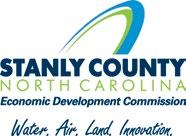

Candice Boyd Lowder, Director
1000 North First Street, Suite 11 Albemarle, NC 28001 704-986-3682
704-986-3685 (f) clowder@stanlyedc.com www.stanlyedc.com
NORTH DAKOTA
Bismarck Mandan Chamber EDC

Nathan Schneider , CEcD-Vice President
1640 Burnt Boat Dr. Bismark, ND 58503
701-223-5660
nschneider@bmcedc.com
www.bismarckmandanedc.com
OKLAHOMA

Allegany County Industrial Development Agency


Craig Clark, Executive Director
CrossRoads Center
6087 State Route 19N, Suite 100 Belmont, NY 14813

585-268-7445
585-268-7473 (f)
clarkcr@alleganyco.com www.acida.org
Harnett County Economic Development

Debbie Taylor, Marketing & Business Recruitment Manager
200 Alexander Dr. or PO Box 1270
Lillington, NC 27546
910-814-6891
919-814-8298 (f)
dhtaylor@harnett.org
www.harnettedc.org
Bartlesville Development Authority

Jared Patton, Vice President 201 SW Keeler Bartlesville, OK 74003
918-337-8086
918-337-0216 (f) jpatton@bdaok.org www.bdaok.org
www.cranstonri.com
City of Warwick
Department of Tourism, Culture, and Development
3275 Pos t Road
Warwick, RI 2886
401-738-2014
econ.dir@warwickri.com
www.visitwarwickri.com
Quonset Development Corporation
Steven J. King, Managing Director 95 Cripe Street North Kingstown, RI 2852
401-295-0044
sking@quonset.com
www.quonset.com
SOUTH CAROLINA
Charleston Regional Development Alliance
Megan Fink
4401 Belle Oaks Drive, Suite 420 North Charleston, SC 29405
843-760-3351
mfink@crda.org
www.crda.org
Lexington County Economic Development
Sarah J. Johnson Department Director
212 South Lake Drive Lexington, SC 29072
803-785-6818
sjjohnson@lex-co.com www.LexingtonCountyUSA.com
South Carolina I-77 Alliance
Christopher Finn
3200 Commerce Drive, Suite D Richburg, SC 29729
803-789-3467
chris.finn@i77alliance.com www.i77alliance.com
SouthernCarolina Regional Alliance
Kay Maxwell
1750 Jackson Street, Suite 100 Barnwell, SC 29812
803-541-0023
kmaxwell@southerncarolina.org
www.southerncarolina.org
TENNESSEE

Blount Partnership

Bryan Daniels CEcD, CCE, IOM President and CEO
201 S. Washington Street St. Maryville, TN 37804
865-983-2247
865-984-1386
bdaniels@blountpartnership.com www.blountchamber.com
Bristol Tennessee Essential Services

April Eads
Business Development Manager
2470 Volunteer Parkway Bristol, TN 37620
423-793-5532
423-793-5545 (f)
aeads@btes.net
www.btes.net/index.php/economic-development
City of Lebanon

Sarah Haston Economic Development Director
200 North Castle Heights Ave. Lebanon, TN 37087
615-443-2839 EXT. 2120
Sarah.Haston@lebanontn.org
www.lebanontn.org
NETWORKS – Sullivan
Partnership
Clay Walker PO Box 747, Blountville, TN 37617 423-279-7681
cwalker@networkstn.com
www.networkstn.com
TEXAS
Big Spring Economic Development Corporation


Mark Willis 215 W. 3rd Street Big Spring, TX 79720 432-264-6032
markwillis@bigspringtx.com
www.bigspringtx.com
Bowie Economic Development Corporation

Janis Crawley 101 E. Pecan, Bowie, TX 76230 940-872-4193
940-531-8201(c)
BEDC@BowieTexasEDC.com
www.BowieTexasEDC.com
Cameron Industrial Foundation
Ginger Watkins, Executive Director 102 E. First Street, Suite A Cameron, TX 76520 254-697-4970
254-482-1119 (c)
gwatkins@cameronindustrialfoundation.com

www.cameronindustrialfoundation. com
Cedar Hill Economic Development Corporation

Henry Florsheim
285 Uptown Boulevard, Bldg. 100 Cedar Hill, TX 75104 972-291-5132
henry.florsheim@cedarhilltx.com
www.cedarhilledc.com
City Development Corp of El Campo

Carolyn Gibson
Executive Director 707 Fahrenthold
P.O. Box 706 El Campo, TX 77437 979-543-6727
979-320-7727 cell cgibson@elcampoeco.org
www.elcampoeco.org
City of Fort Worth

Robert Sturns, Director 1150 S. Freeway Fort Worth, TX 76104 817-392-2663
Robert.Sturns@fortworthtexas.gov
DeSoto Economic Development
Matt Carlson, CEO
211 E. Pleasant Run Road
DeSoto, TX 75115
Ph: 972-230-9611
mcarlson@desototexas.gov
www.dedc.org
LCRA

Karen Dickson
Economic Development Manager
3700 Lake Austin Blvd. Austin, TX 78703 512-578-3291
karen.dickson@lcra.org
www.lcra.org/economic-development/ pages/default.aspx

McKinney Economic Development Corporation
Peter Tokar III
President/CEO
7300 SH 121 SB, Ste 200 McKinney, TX 75070
972-547-7687
ptokar@mckinneyedc.com
www.uniquemckinney.com
Mineola Economic Development Corp

City of Leander
Randall Malik
Economic Development Director 201 N Brushy Leander, TX 78641 512-528-2855

rmalik@leandertx.gov
www.leanderbusiness.com
Conroe Economic Development Council
Danielle Scheiner, Executive Director
300 W Davis St, Ste 510 Conroe, TX 77301 USA 936-522-3530
scheiner@conroeedc.org
www.conroeedc.org
Mercy Rushing, Executive Director 300 Greenville Highway Mineola, TX 75773
903-569-6183
903-245-8505
mrushing@mineola.com
www.mineola.com
Odessa Economic Development Corporation

Tom Manskey
700 N. Grant Ave.
Odessa, TX 79761
432-333-7880
tom@odessaecodev.com
www.odessatx.com
Jacksboro Economic Development Corporation
Brenda Tarpley
Executive Director
P.O. Box 610 Jacksboro, TX 76458
940-567-3151
btarpley@jacksboroedc.com
www.jacksboroedc.com
Laredo Economic Development


Gene Lindgren
President & CEO
P.O. Box 2682 Laredo, TX 78044 956-722-0563
glindgren@laredoedc.org
www.laredoedc.org
Marble Falls EDC
Christian Fletcher 801 Fourth Street Marble Falls, TX 78654 830-798-7079
cfletcher@marblefallseconomy.com
www.marblefallseconomy.com
Mount Pleasant EDC
Nathan Tafoya, Executive Director 1604 N. Jefferson Ave. Mount Pleasant, TX 75455 903-572-6602
nathan@mpedc.org
www.mpedc.org
New Braunfels EDC
Michele Boggs
Marketing/Research Director
390 S. Seguin Avenue New Braunfels, TX 78130 830-608-2811
michele@innewbraunfels.com
www.newbraunfelsedc.com

Plainview Economic Development Corporation


Kristi Aday, Executive Director 1906 West 5th Plainview, TX 79072 806-293-8536
kaday@plainviewtx.org www.plainviewedc.org
TexAmericas Center

Eric Voyles, Executive Vice President Chief Economic Development Officer 107 Chapel Lane New Boston, TX 75570 903-306-8923

Eric.Voyles@texamericascenter.com www.texamericascenter.com
Whitesboro Economic Development Corp.
Lynda Anderson, Director P.O. Box 340 or 111 W. Main Whitesboro, TX 76273 930-564-3311

landerson@whitesborotexas.com www.whitesborotexas.com
UTAH
Bedford County Office of Economic Development

Pam Bailey, Director of Economic Development Bedford County 122 East Main Street, Suite 202 Bedford, Virginia 24523 540-587-5670
pbailey@bedfordcountyva.gov
www.bedfordeconomicdevelopment.com
WASHINGTON
City of Lakewood Economic Development
Becky Newton, Manager 6000 Main Street SW Lakewood, WA 98499 877-421-9126
bnewton@cityoflakewood.us www.buildyourbetterhere.com
City of Maple Valley

Kristina Weaver Economic Development Manager P.O. Box 320 Maple Valley, WA 98038 425-413-8800
kristina.weaver@maplevalleywa.gov www.maplevalleywa.gov
Eagle Mountain Economic Development

Evan Berrett, City Administrator 1650 E. Stagecoach Run Eagle Mountain, UT 84005 801-789-6621

eberrett@emcity.org
www.eaglemountaincity.com
VIRGINA

Arlington Economic Development
Ryan Touhill, AED Director
Pflugerville Community Development

Amy Madison 3801 Helios Way Suite 130
Pflugerville, TX 78660 512-990-3725
amym@pfdevelopment.com www.pfevelopment.com
1100 N Glebe Rd Suite 1500 Arlington, VA 22201 703-228-0808
703-228-0805 (f)
rtouhill@arlingtonva.us
www.arlingtoneconomicdevelopment.com
Try-City Development Council
Karl Dye, President & CEO 7130 W. Grandridge Blvd #A Kennewich, WA 99336 509-735-1000

kdye@tridec.org
www.tridec.org

WISCONSIN

City of Franklin Economic Development
John Regetz, Director 9229 W. Loomis Road Franklin, WI 53132 414-427-7566
jregetz@franklinwi.gov
www.franklinwi.gov
Madison Region Economic Partnership


Kathy Collins, VP Economic Development
8517 Excelsior Drive, Suite 107 Madison, WI 53717 608-571-0407
kcollins@madisonregion.org
www.madisonregion.org
New North, Inc

Barb LaMue, President & CEO 2740 W. Mason Street Green Bay, WI 54303 920-676-1960
barb.lamue@thenewnorth.com www.thenewnorth.com
Portage County Business Council, Inc. PCB
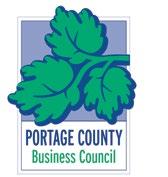

Michael Witte, Executive Director 5501 Vern Holmes Drive Stevens Point, WI 54482
715-344-1940
715-344-1940 (f)
michaelw@portagecountybiz.com
www.portagecountybiz.com
WYOMING
Advance Casper
Morryah McCurdy 111 S. Durbin, Suite 200 Casper, WY 82601 307-577-7011
morryah@advancecasper.com
www.advancecasper.com
Cheyenne LEADS
Betsey Hale, Chief Executive Officer One Depot Square 121 W. 15th St. Suite 304 Cheyenne, WY 82001 307-638-6000
betseyh@cheyenneleads.org
cheyenneleads.org

The Laramie Chamber Business Alliance

Josh Boudreau, VP Economic Development
528 South Adams Street
Laramie, WY 82070
307-745-7339
jboudreau@laramie.org
www.laramie.org
CANADA

ALBERTA
Calgary Economic Development

500 Centre Street S, 32nd Floor
Calgary, Alberta, Canada T2G 1A6 403-221-7831
info@calgaryeconomicdevelopment.com
www.calgaryeconomicdevelopment.com
MANITOBA
City of Brandon
Dan Fontaine
Business Development Specialist

Main Floor, 410 9th Street
Brandon, Manitoba, Canada R7A 6A2
204-729-2133
d.fontaine@brandon.ca
www.economicdevelomentbrandon.com
NEW BRUNSWICK
Ignite Fredericton
Paula Lehr
40 Crowther Lane, Ste. 100 Fredericton, NB E3C 0J1 506-282-0624
paula.lehr@ignitefredericton.com www.ignitefredericton.com
Imagine Chaleur
Shirley de Silva
702 Principale Street, Ste. 2 Petit-Rocher, NB E8j 1V1 506-542-2688

shirley.desilva@csrchaleurrsc.ca www.csrchaleurrsc.ca
Expansion Dieppe
Louis Godbout 333 Acadia Avenue Dieppe, NB E1A 1G9 506-877-7850
louis.godbout@dieppe.ca www.expansiondieppe.ca
ONTARIO
County of Elgin

Carolyn Krahn, Manager Economic Development And Tourism
450 Sunset Drive St. Thomas, Ontario, Canada N5R 5V1 519-631-1460 ext. 133
ckrahn@elgin.ca
www.progressivebynature.com
City of Guelph
Christine Chapman
1 Carden Street
Guelph, Ontario, Canada N1H 3A1 519--822-1260 ext. 2823
Christine.chapman@guelph.ca
www.guelph.ca/business
City of Kawartha Lakes Economic Development
Lindsey Schoenmakers
180 Kent Street West
Lindsay, Ontario, Canada K9V 2Y6 705-324-9411
lschoenmakers@kawarthalakes.ca www.kawarthalakes.ca
City of Mississauga Economic Development



Chistina Kakaflikas, Ec. D. Director of Economic Development Office
Mississauga City Hall
300 City Centre Drive, 3rd Floor
Mississauga, ON L5B 3C1 Canada 800-456-2181
905-896-5931
christina.kakfikas@mississauga.ca
www.TheFuturelsUnlimited.ca
Town of Aurora Economic Development
Lisa Hausz
100 John West Way, Box 1000 Aurora, Ontario, Canada L4G 6J1 905-727-1375
lhausz@aurora.ca
www.aurora.ca
Middlesex County
Cara A. Finn, BBA, M. Ad.Ed. Director of Economic Development 399 Ridout St. North London, ON N6A 2P1 519-434-7321
cfinn@middlesex.ca www.investinmiddlesex.ca

Vaughan Economic and Cultural Development
Raphael Costa
Vaughan City Hall, Level 200 2141 Major Mackenzie Drive
Vaughan, Ontario, Canada L6A 1T1 905-832-8526 ext. 8891
raphael.costa@vaughan.ca
www.vaughan.ca/Business

